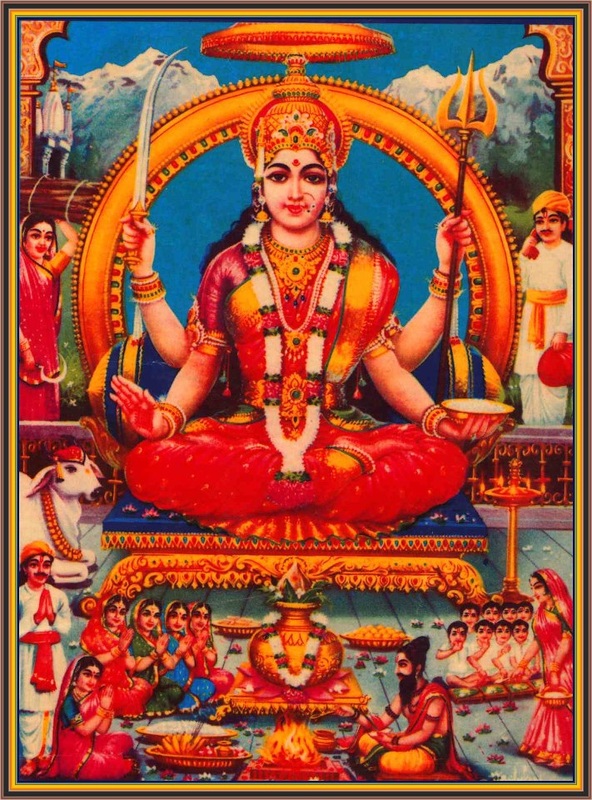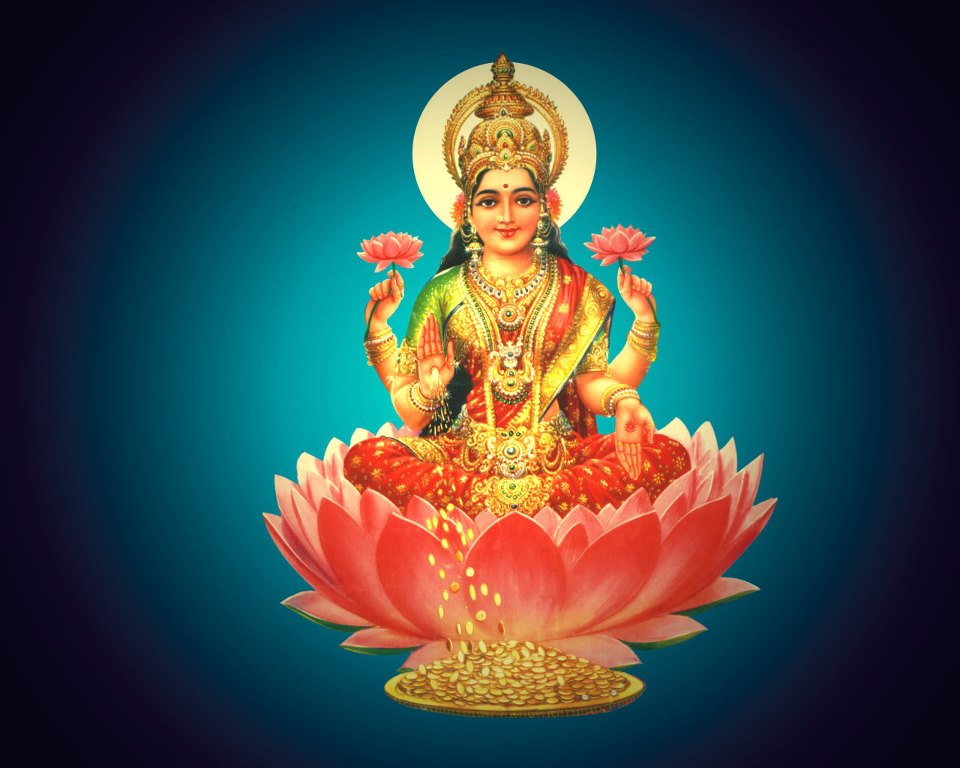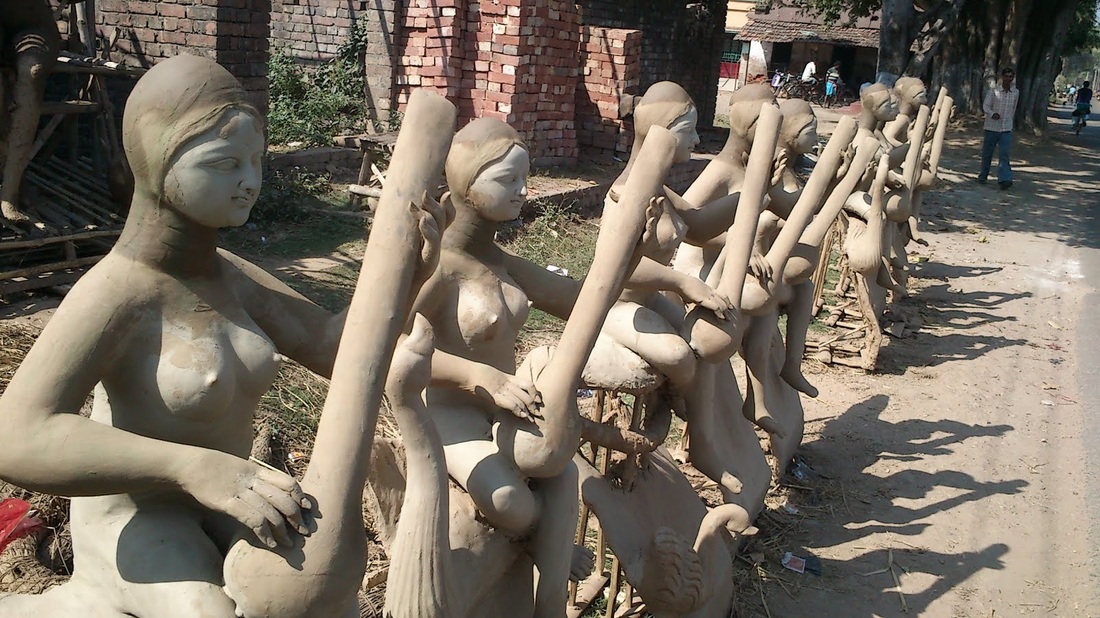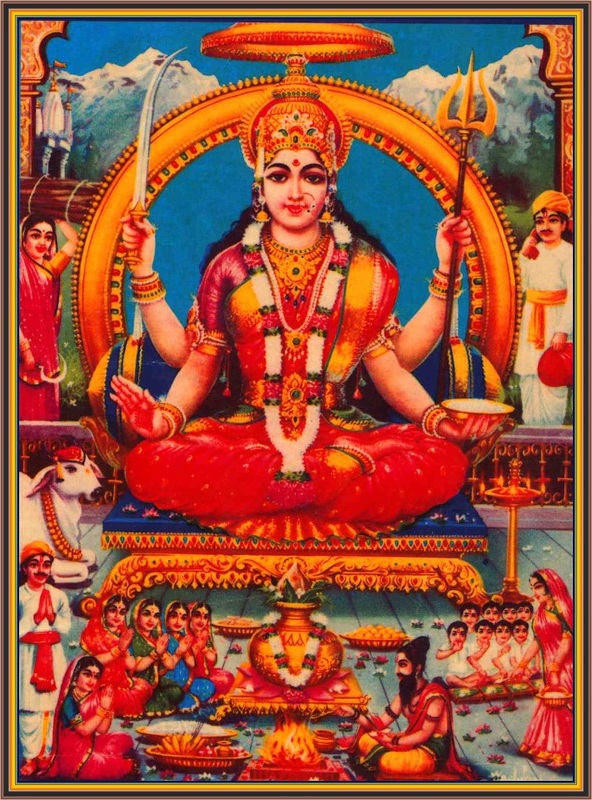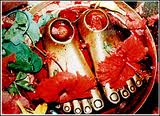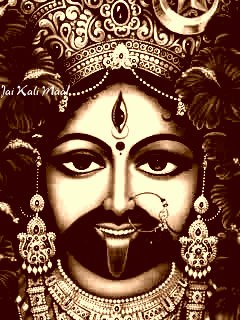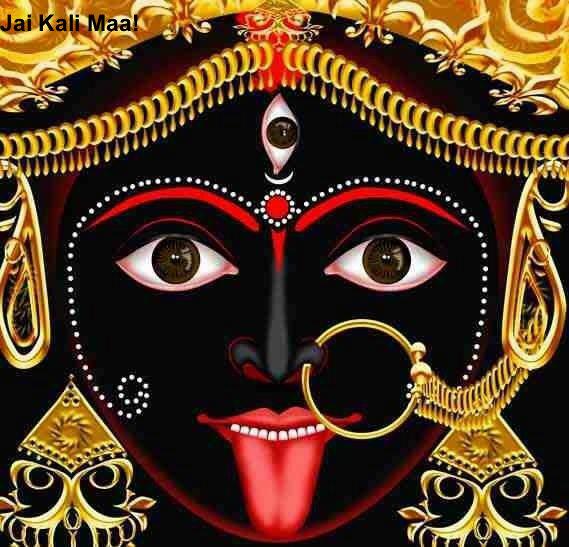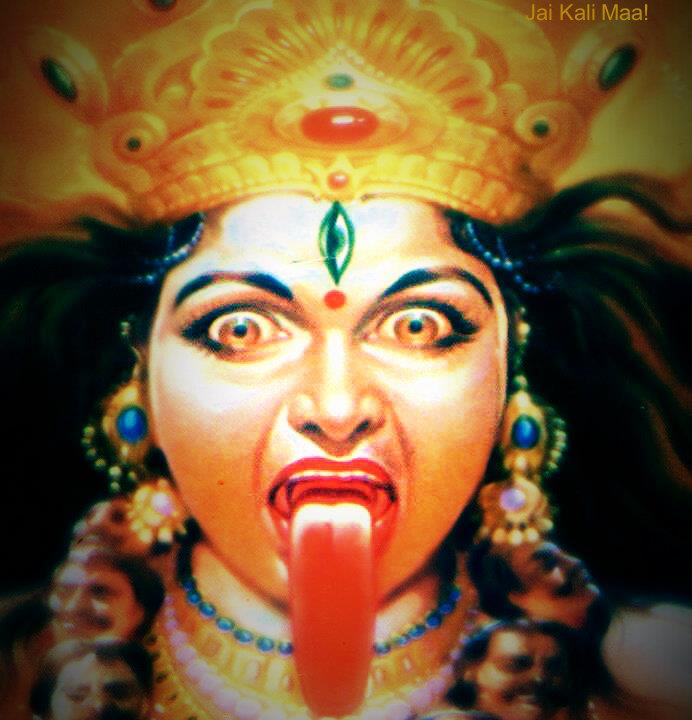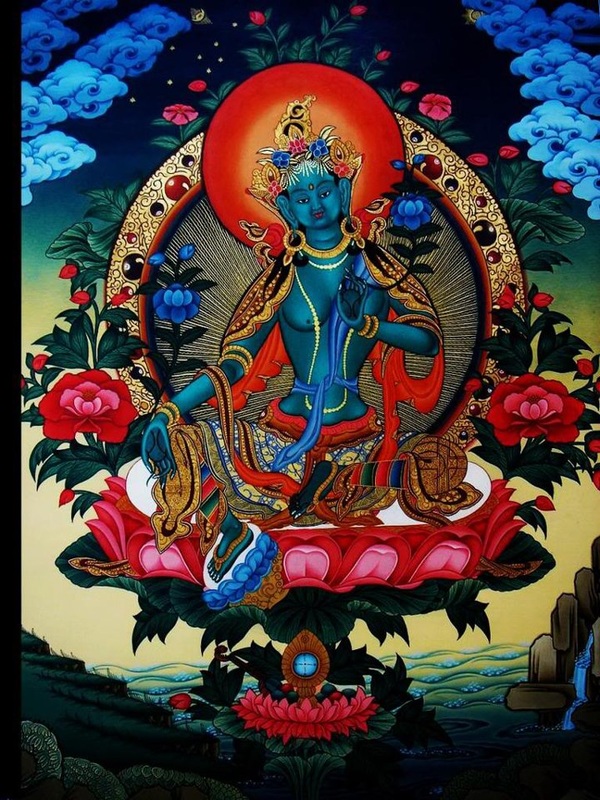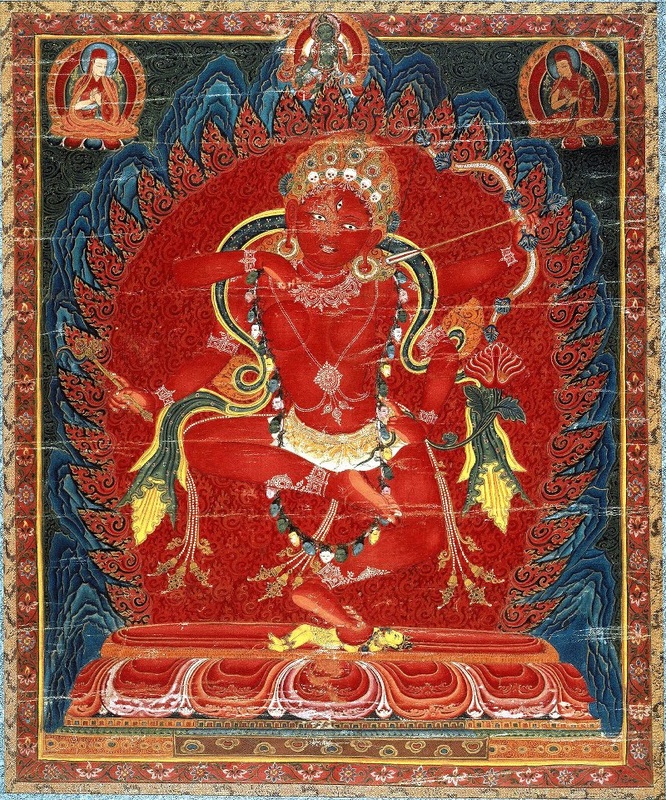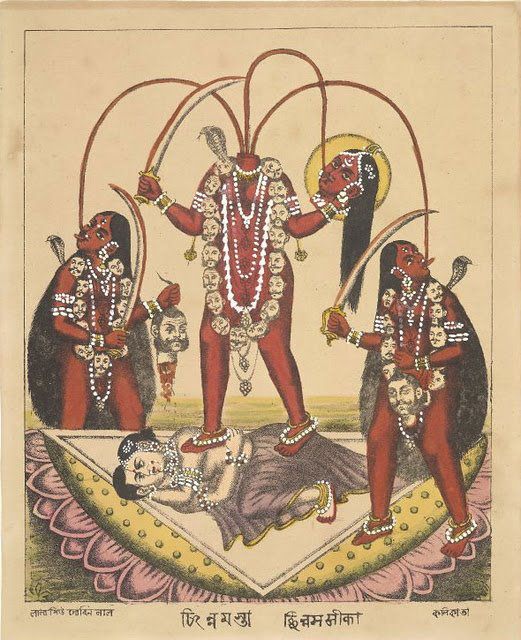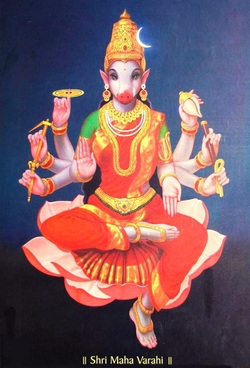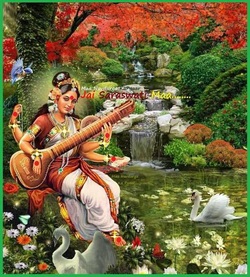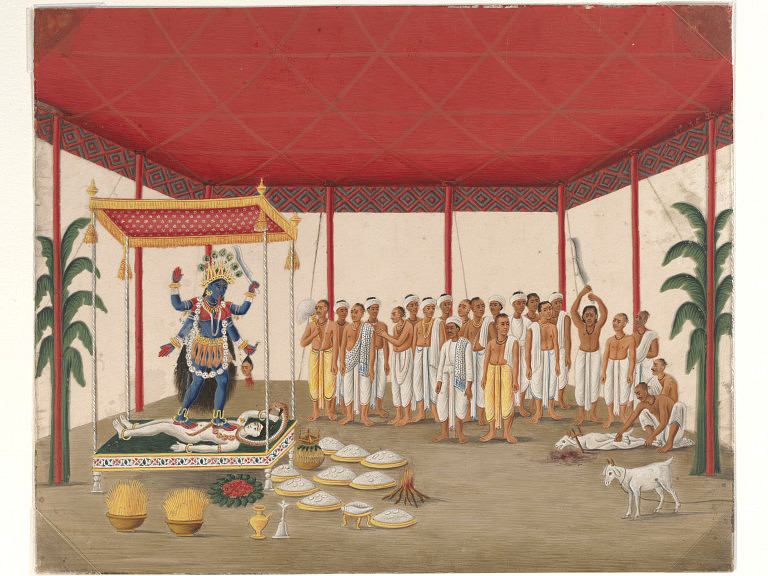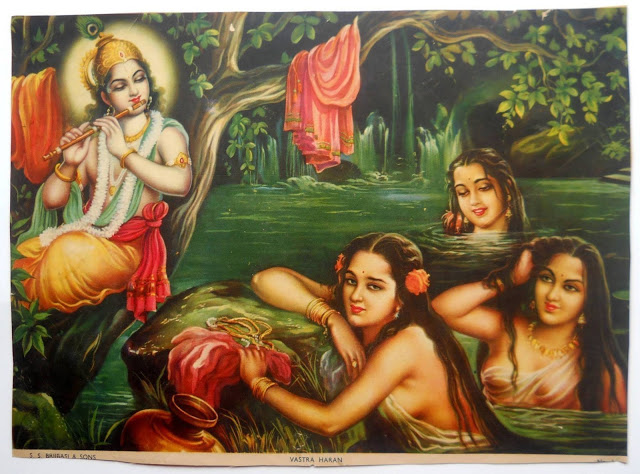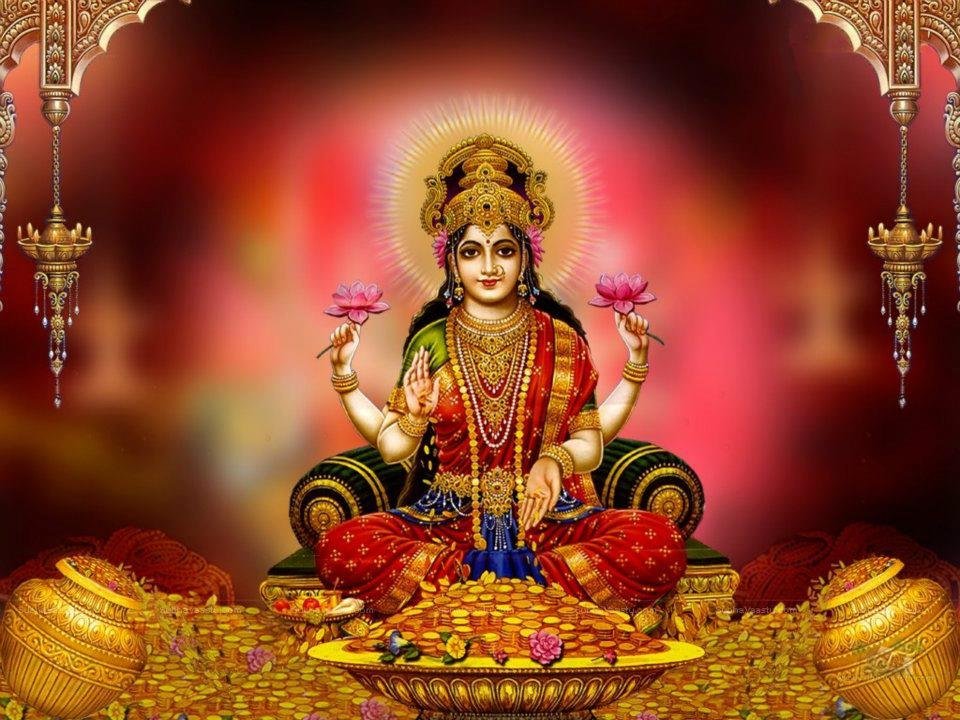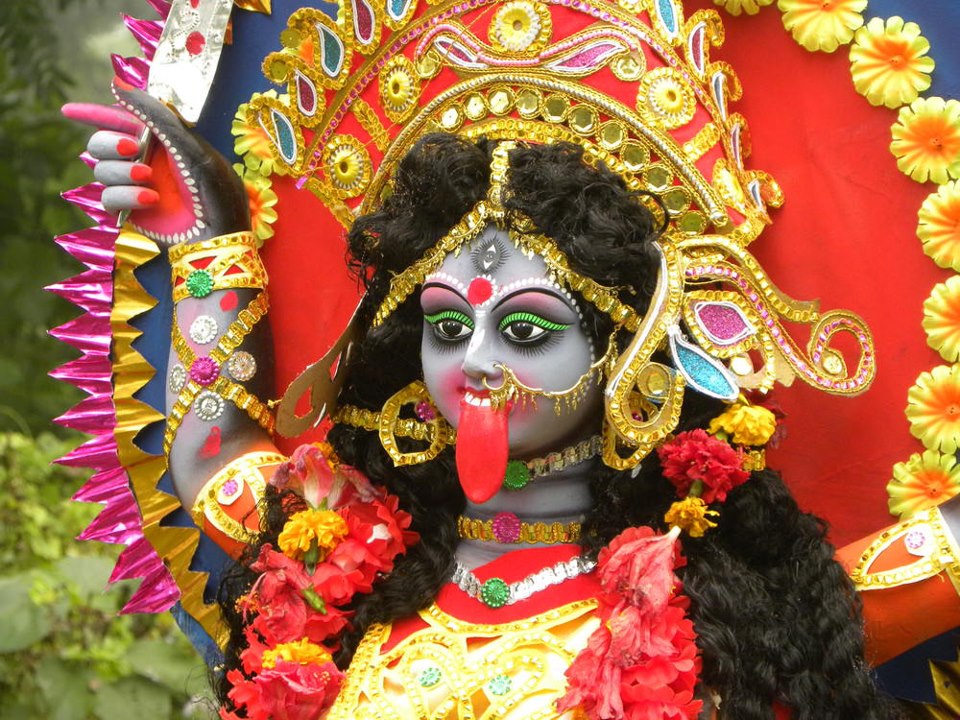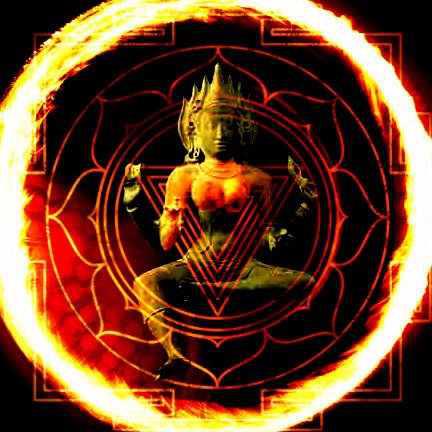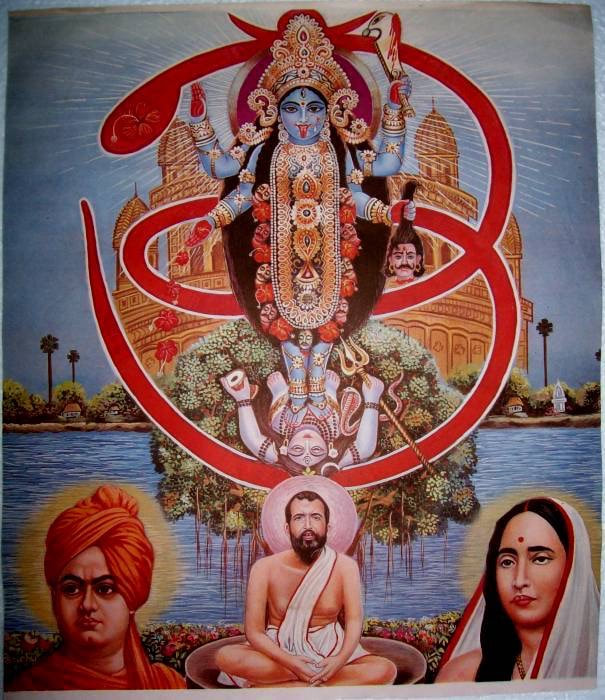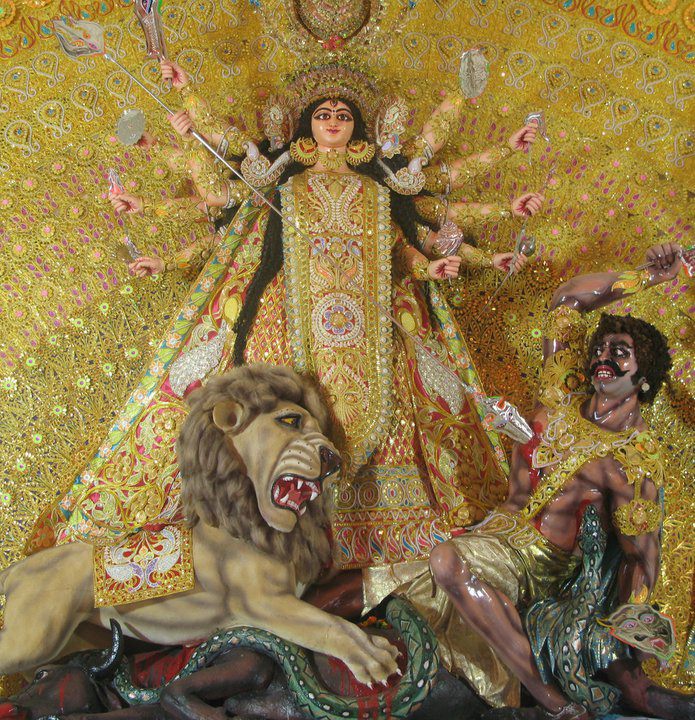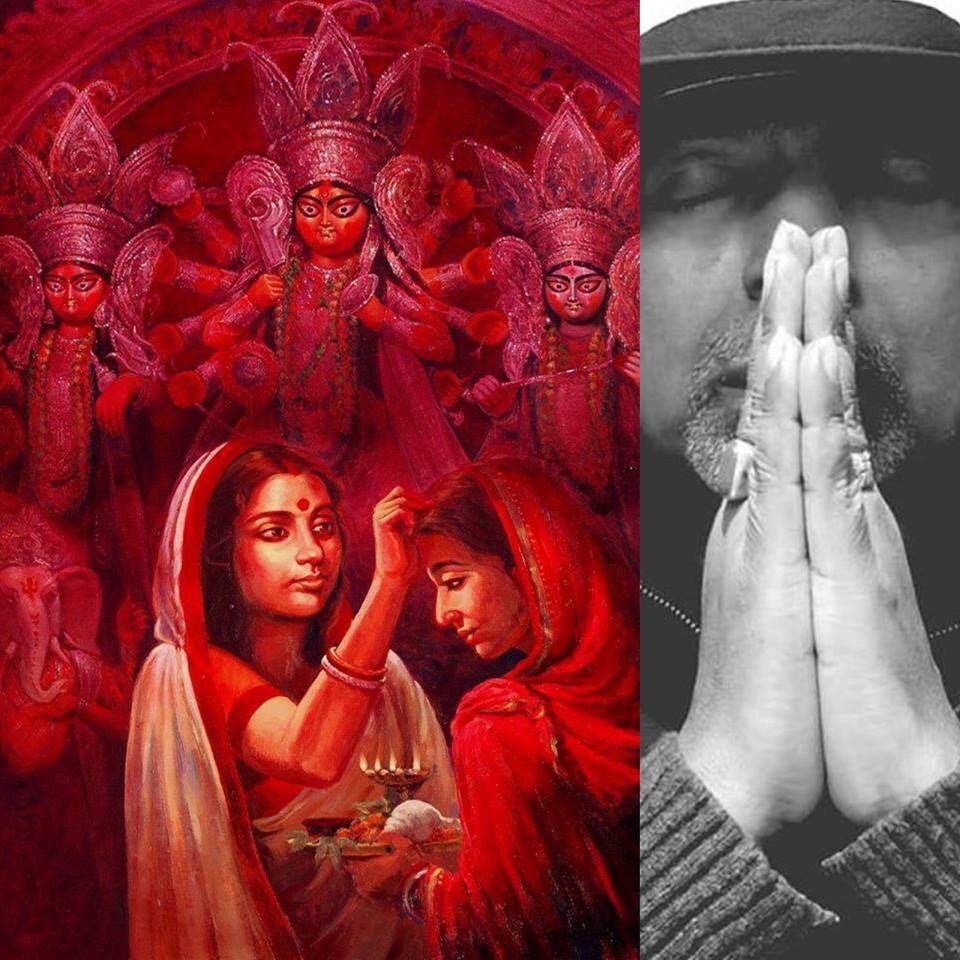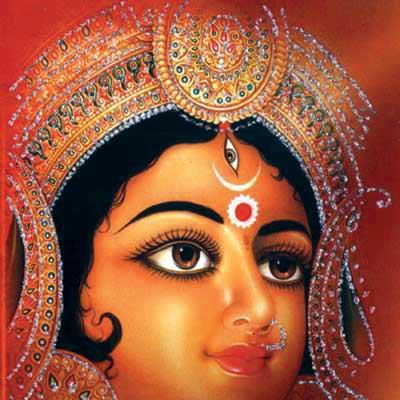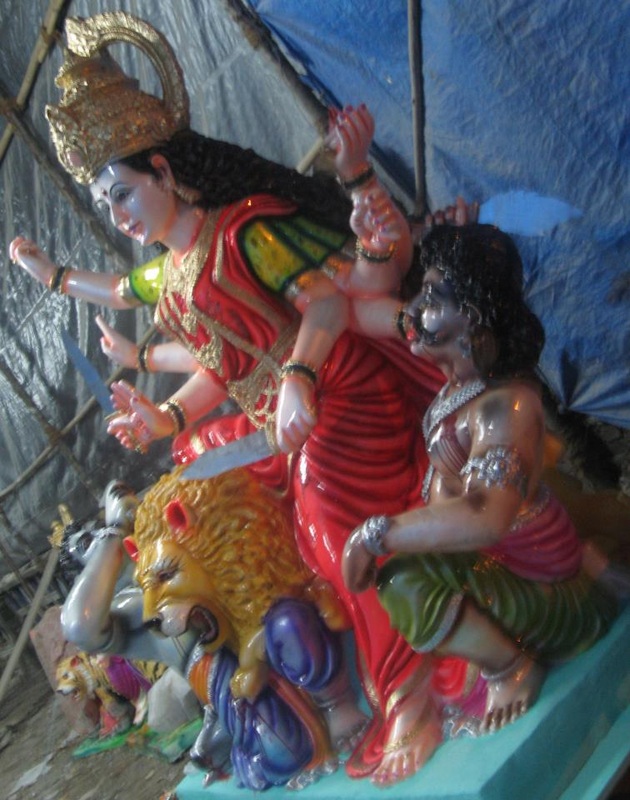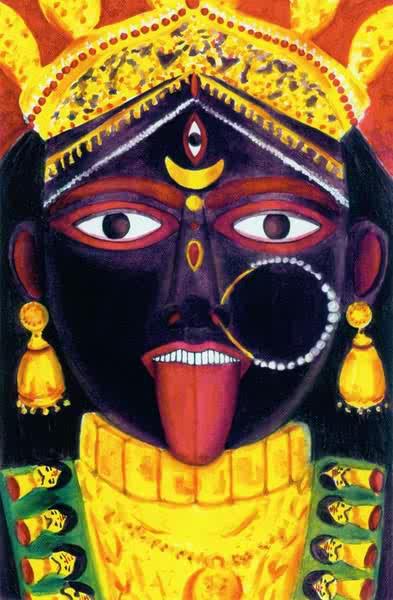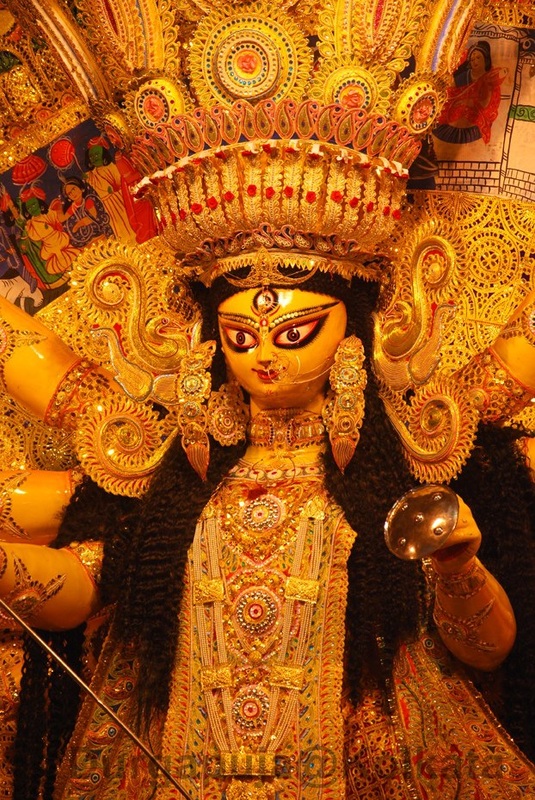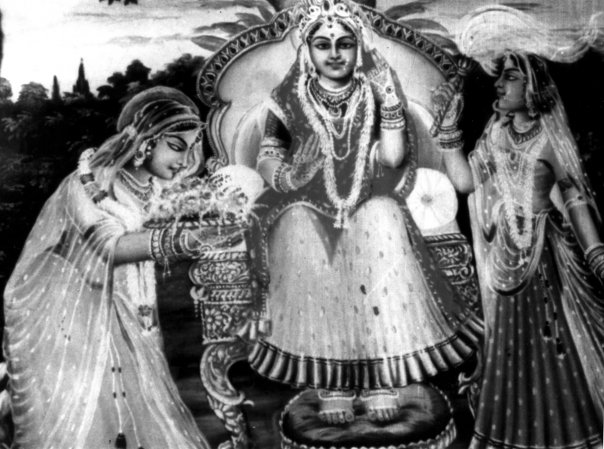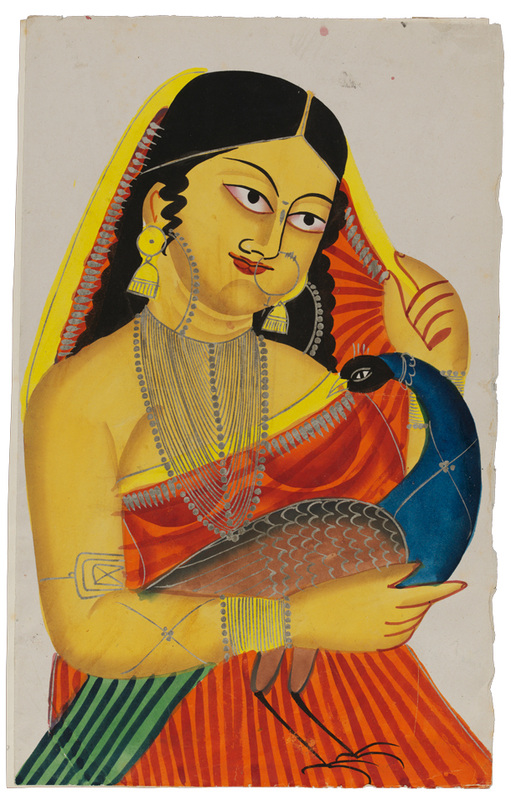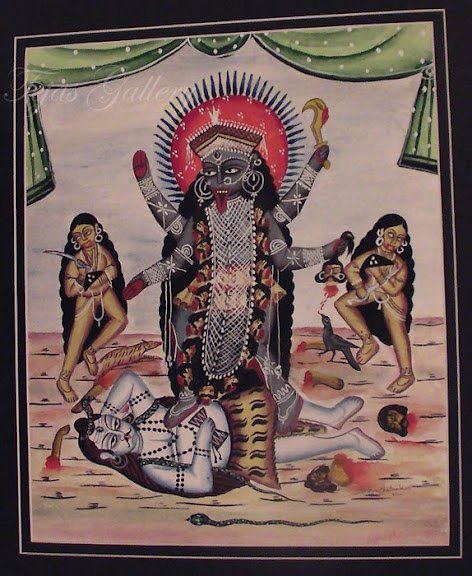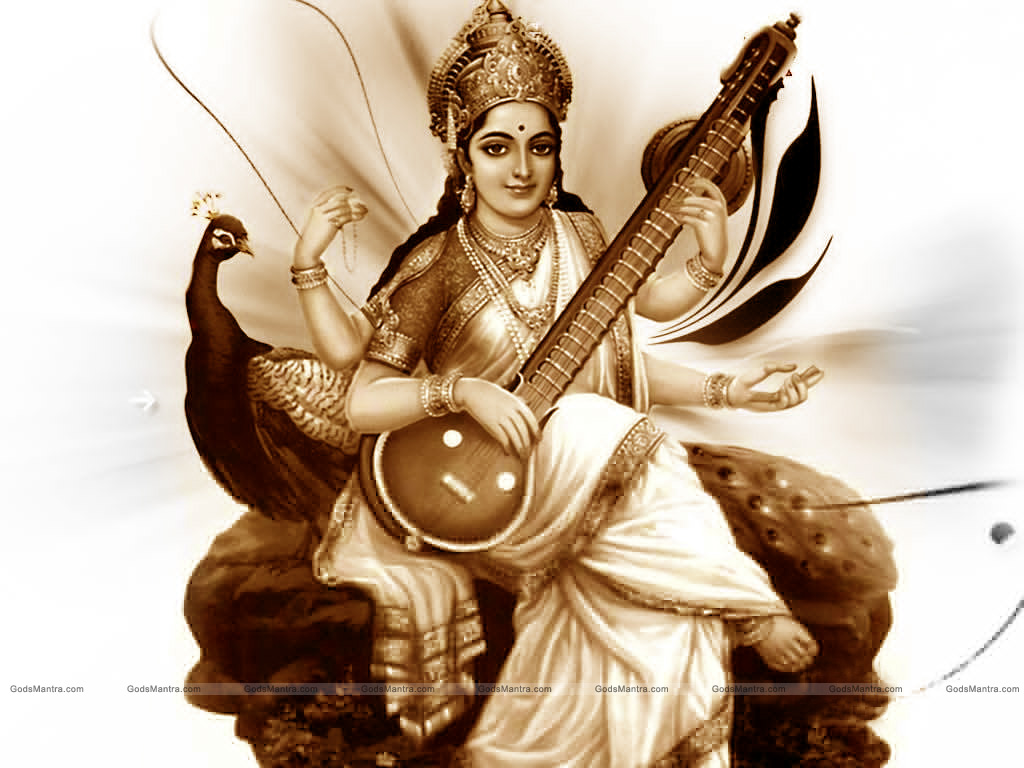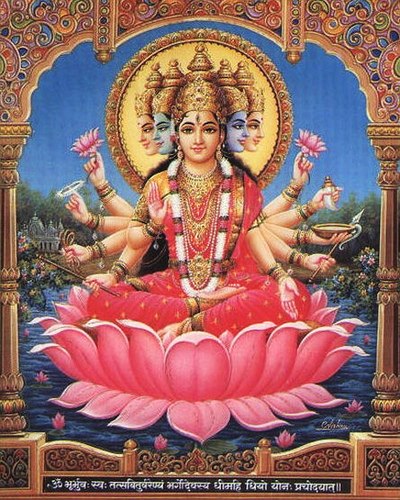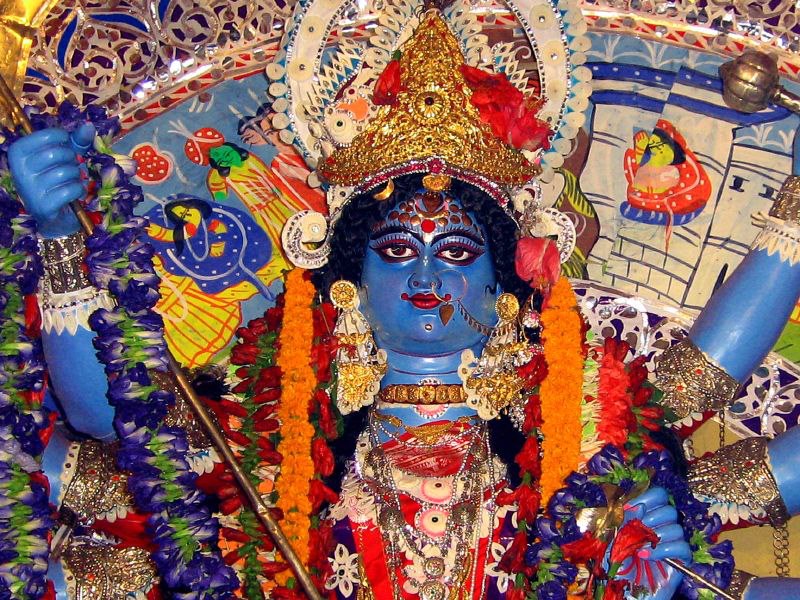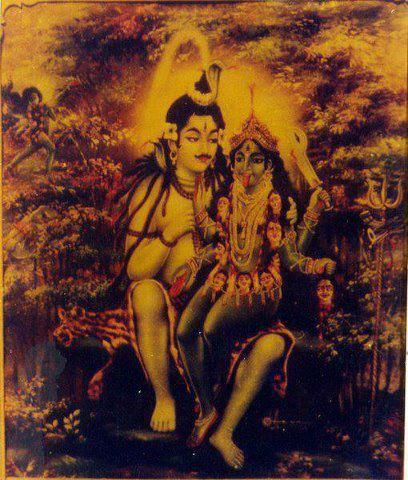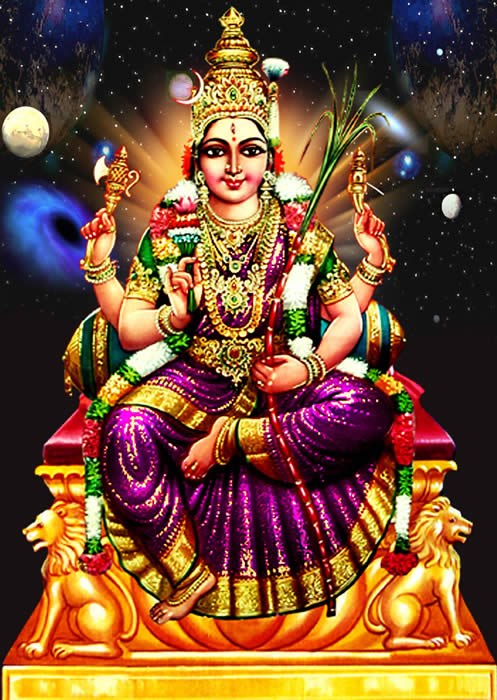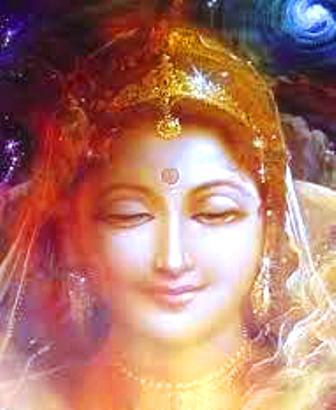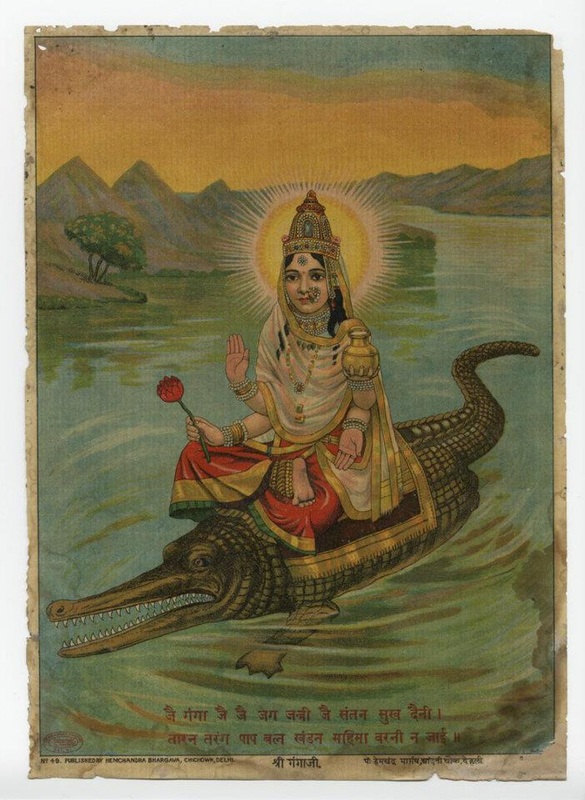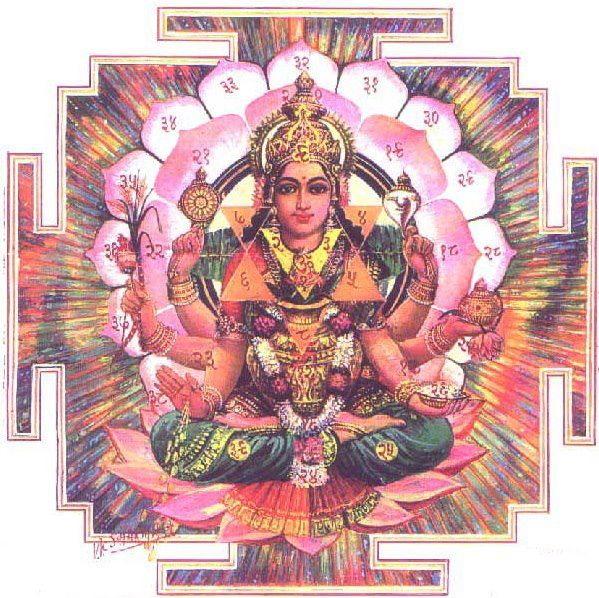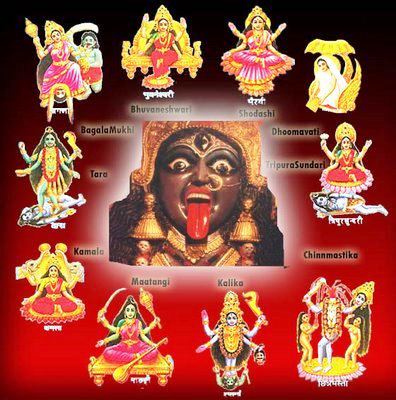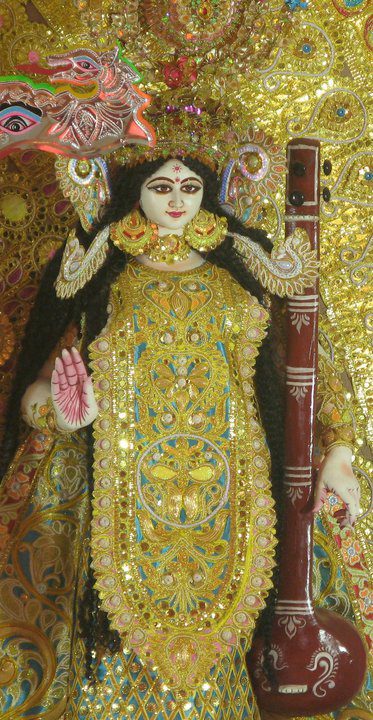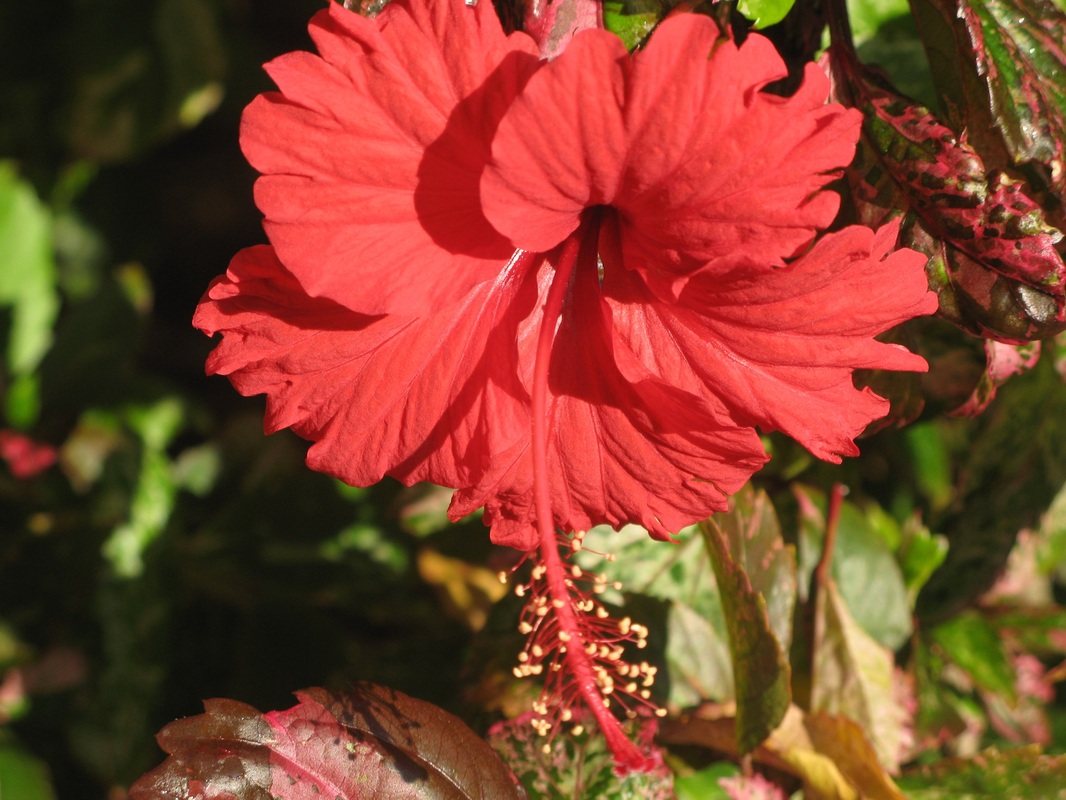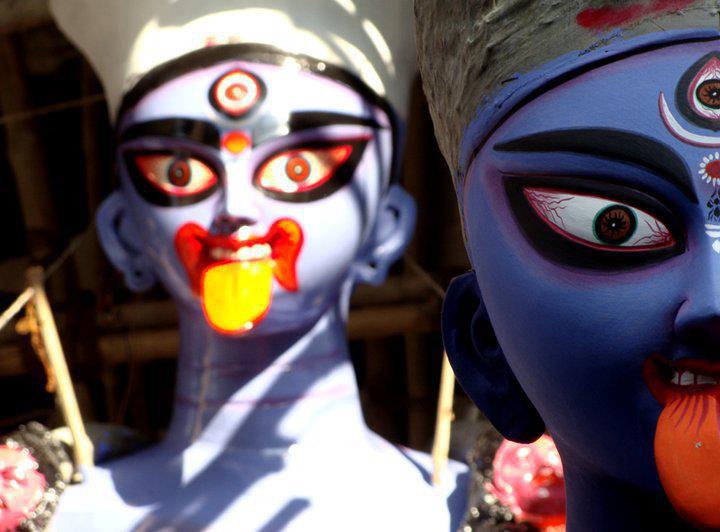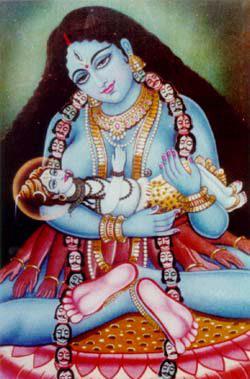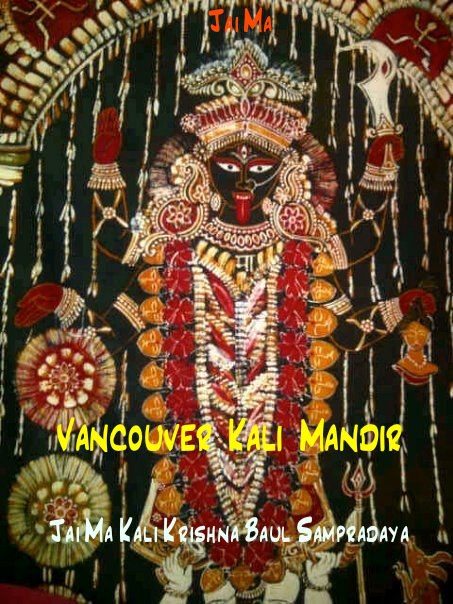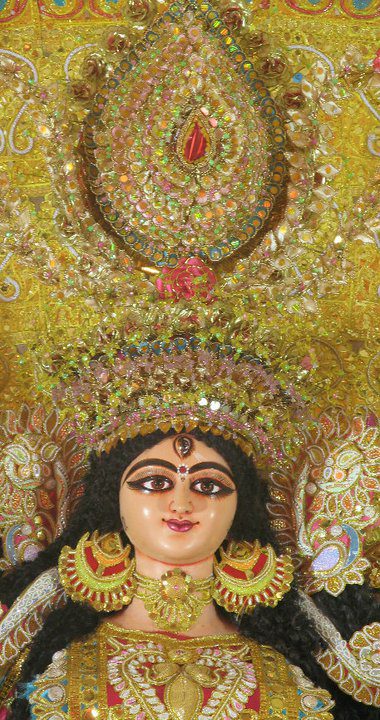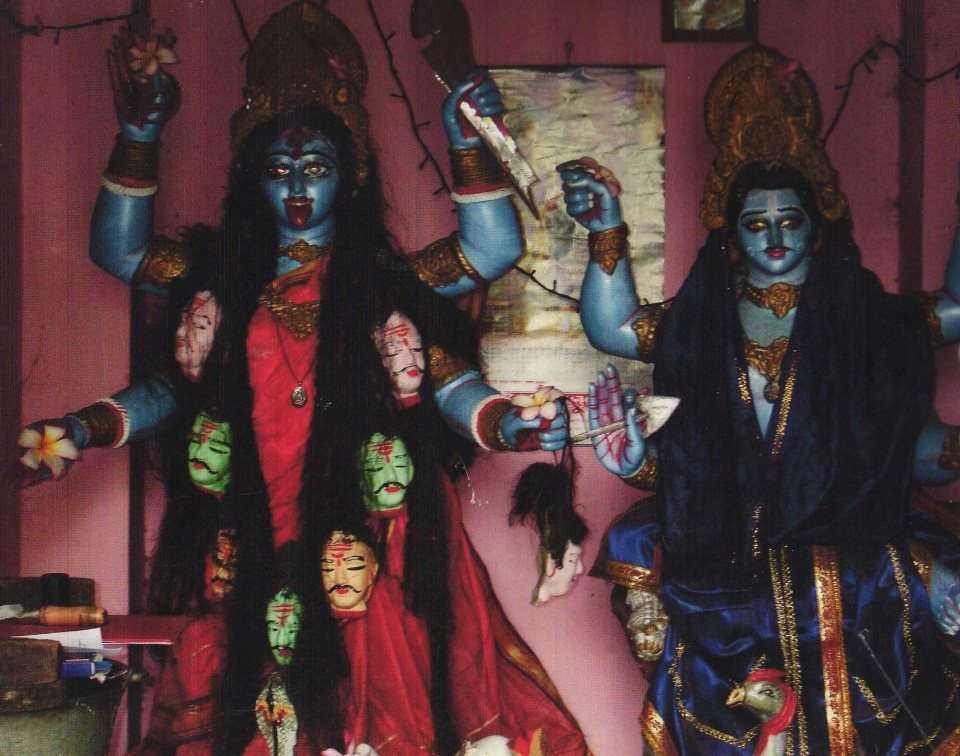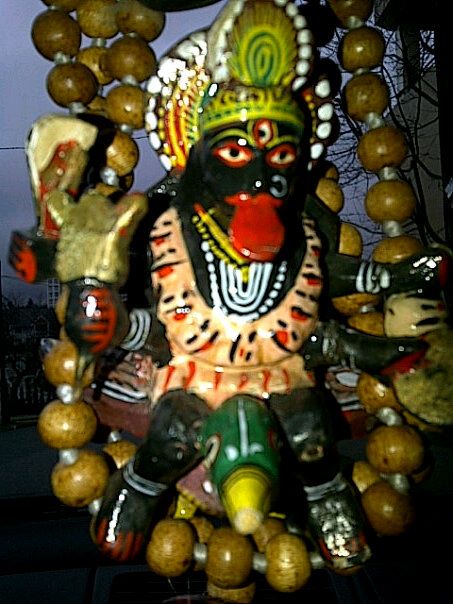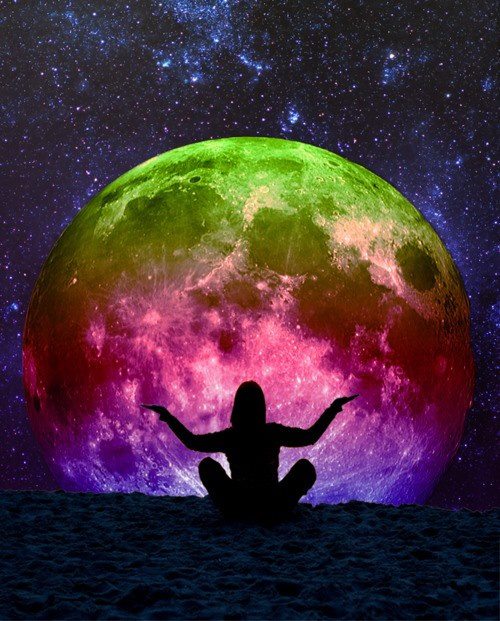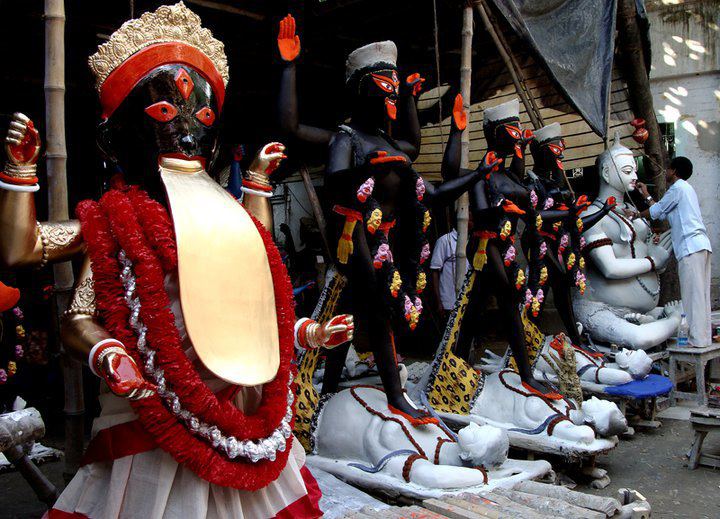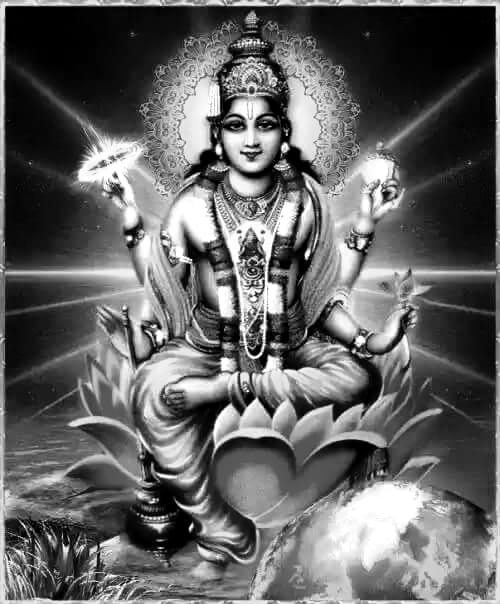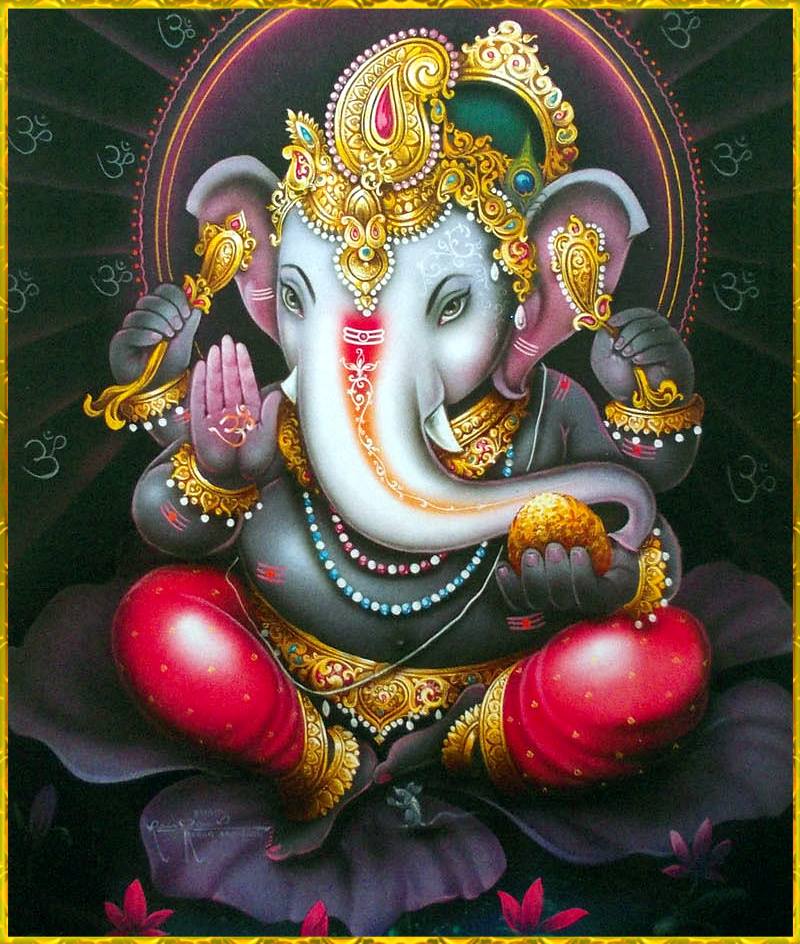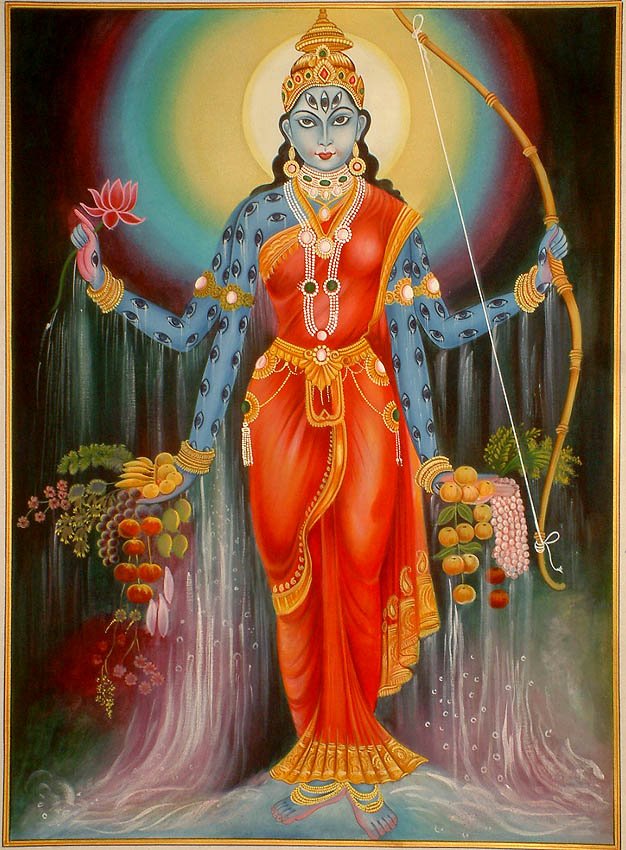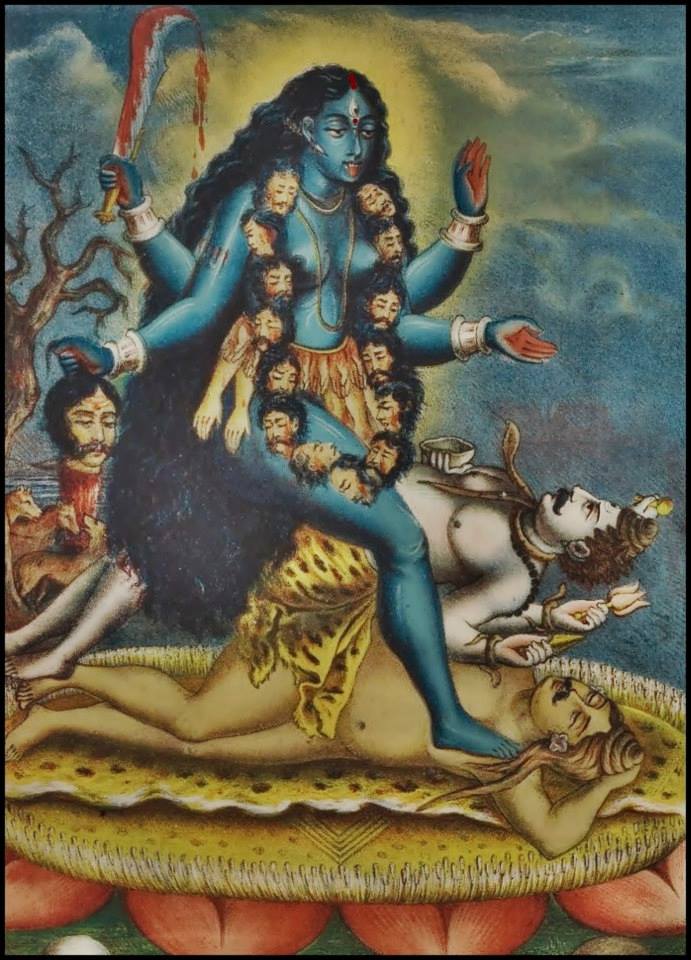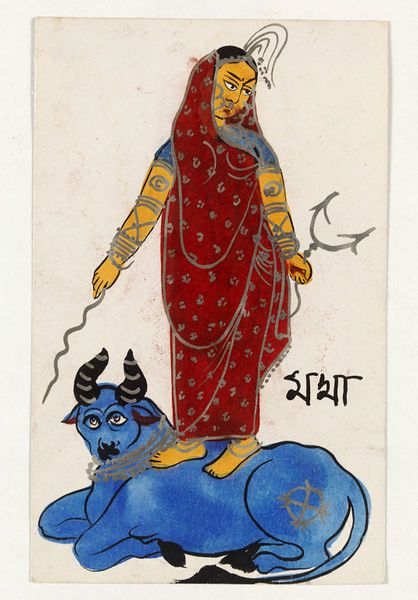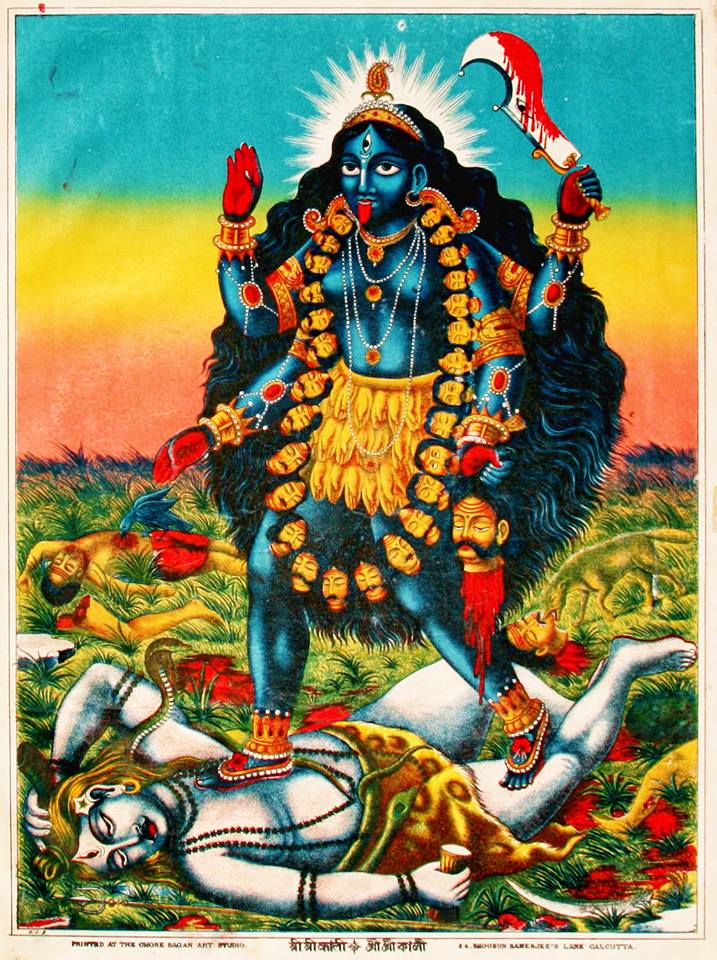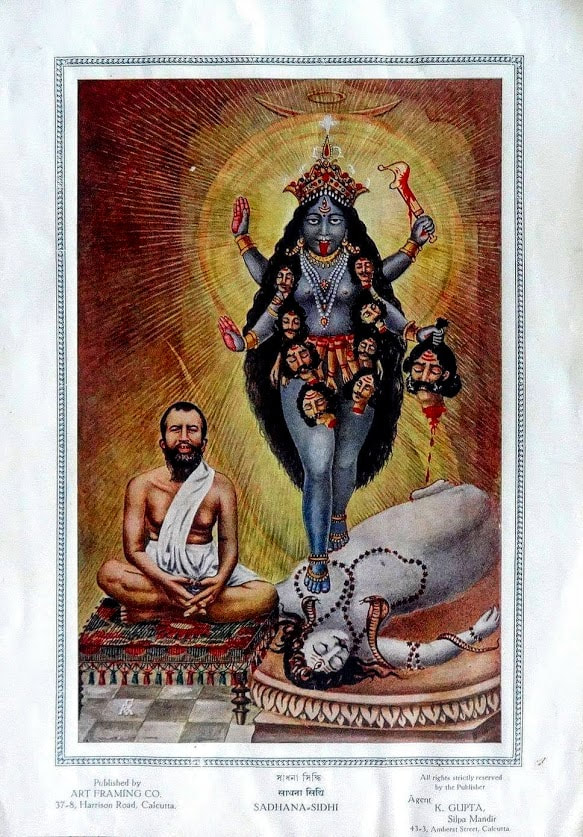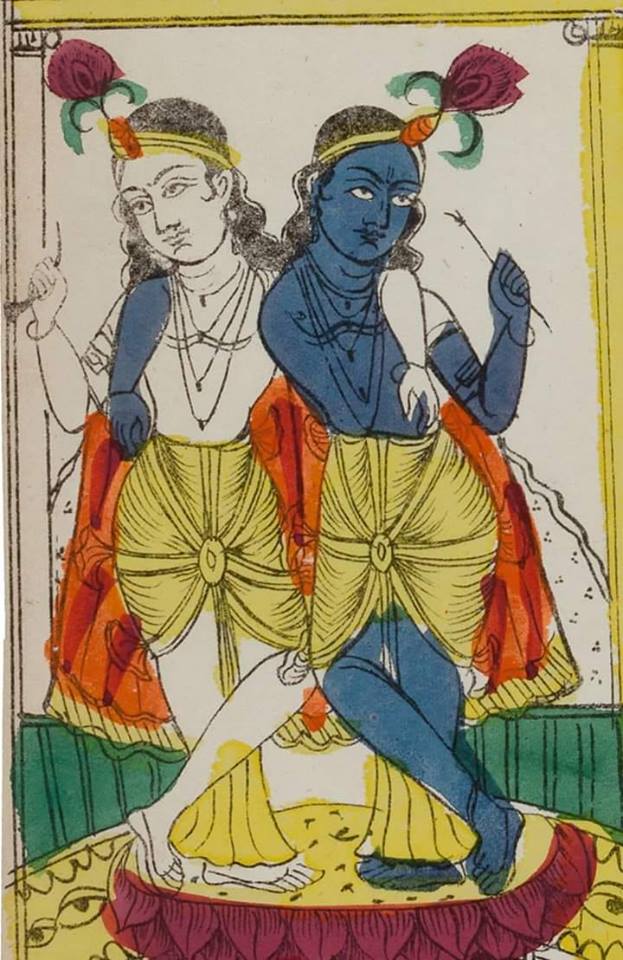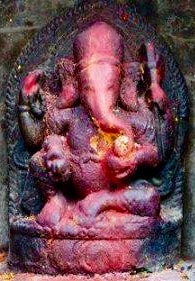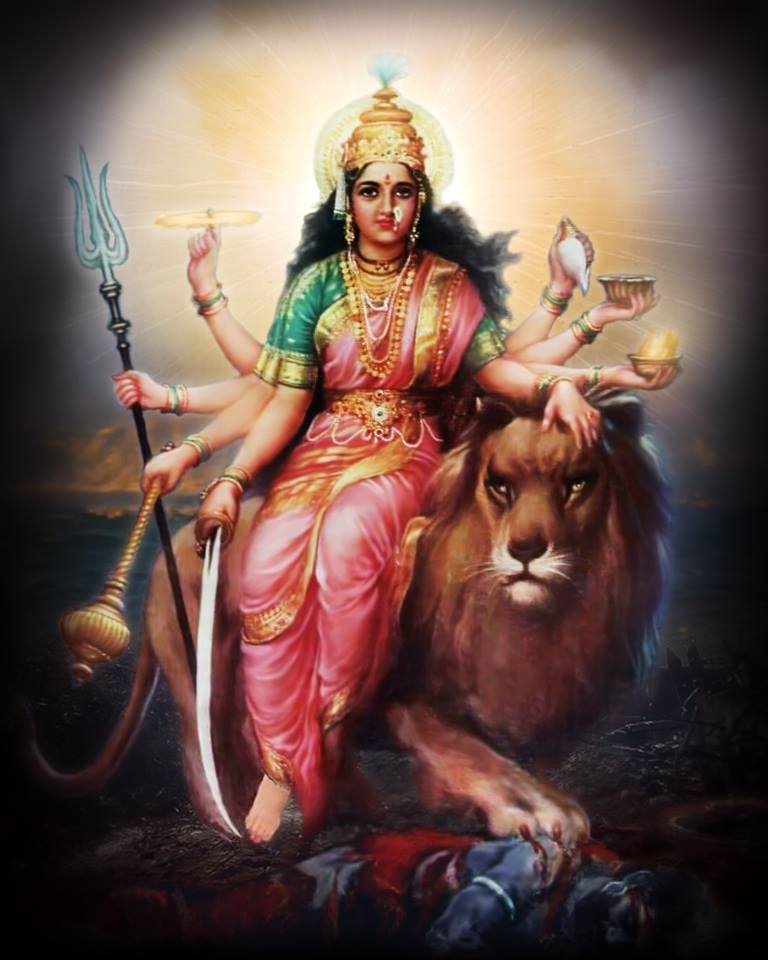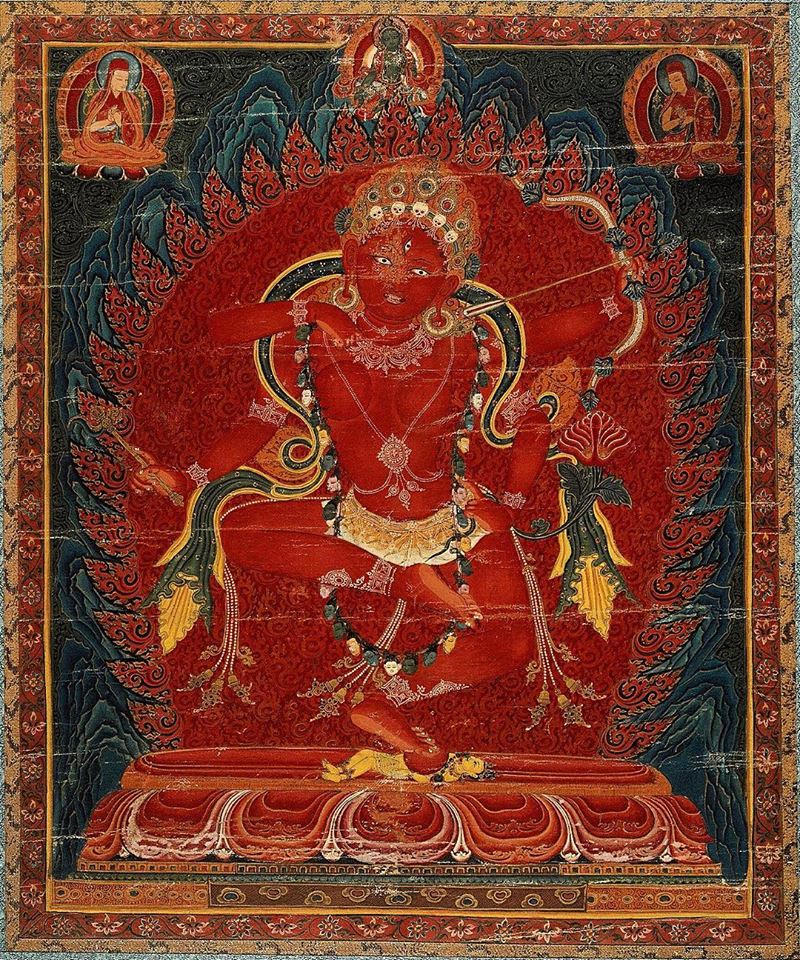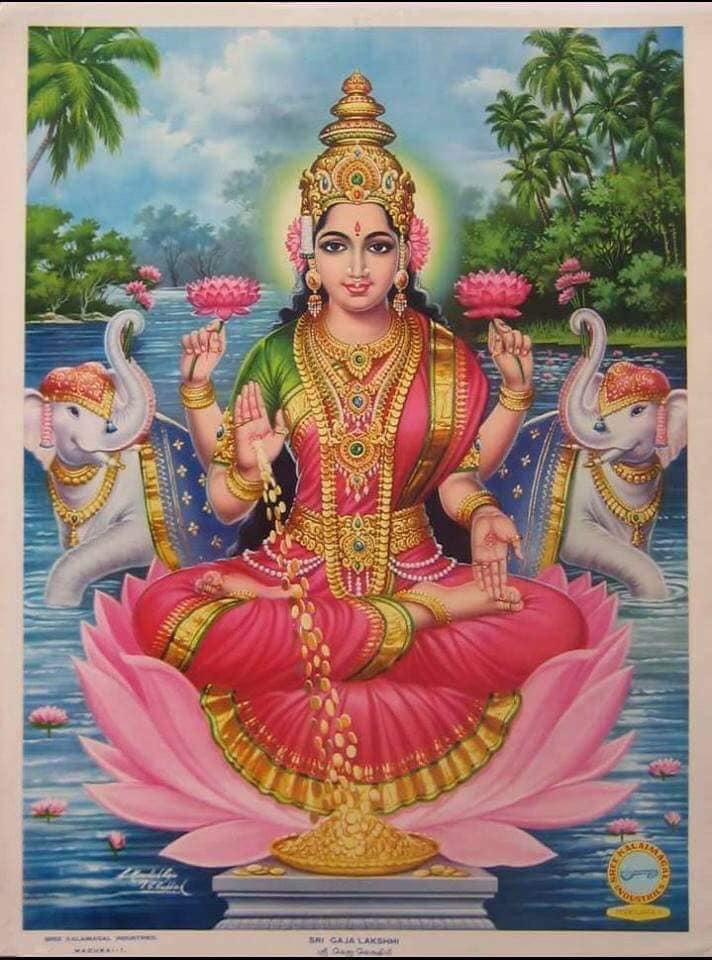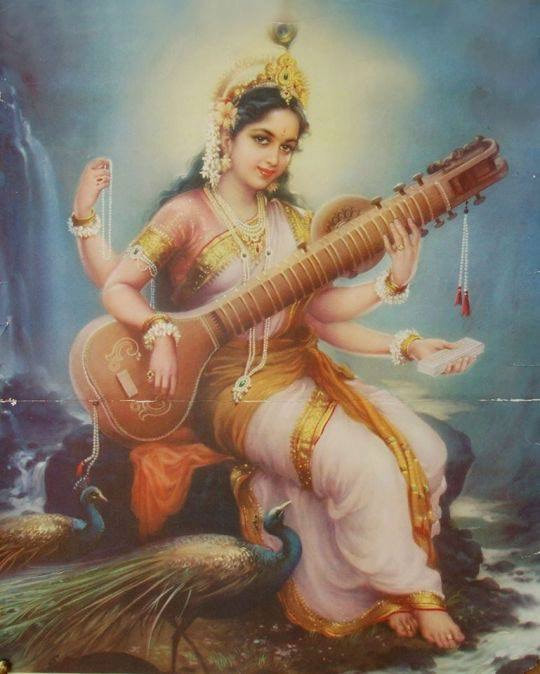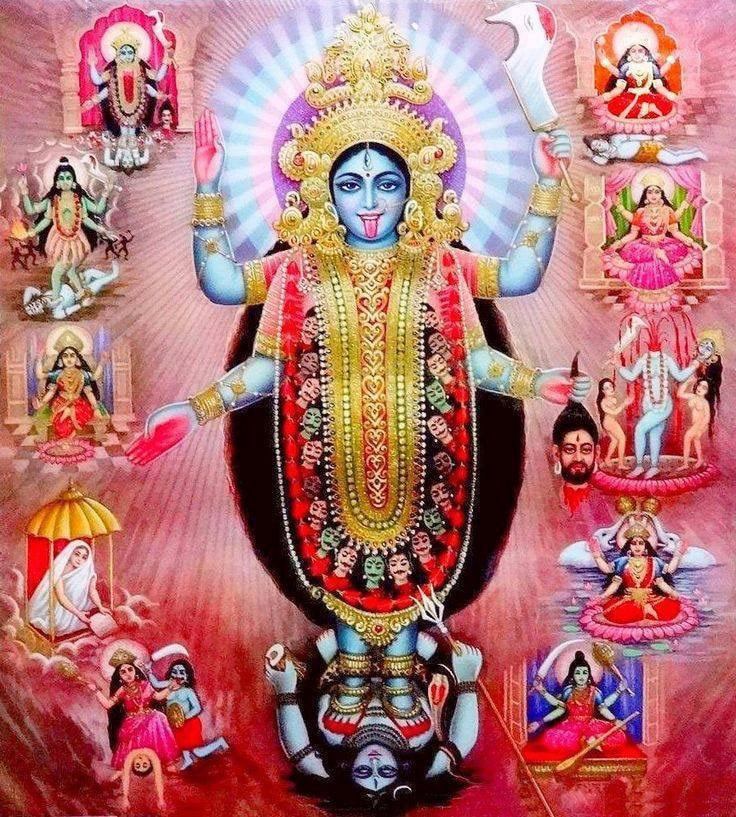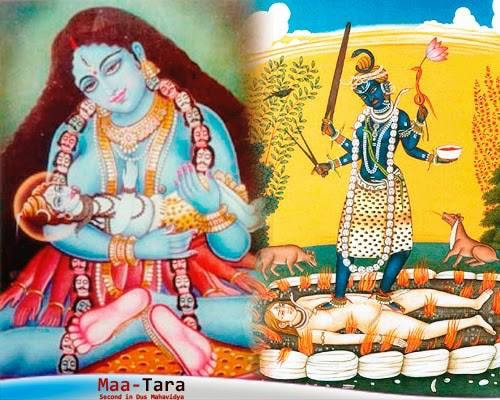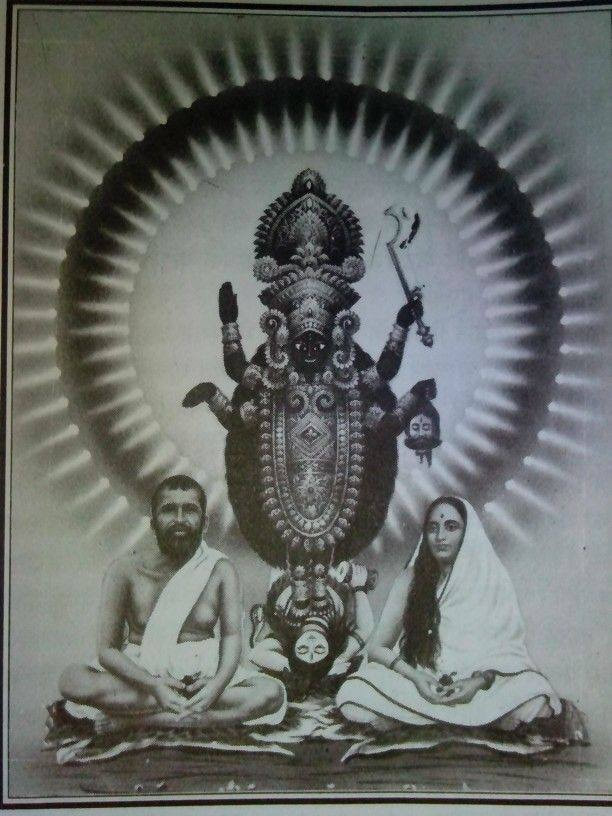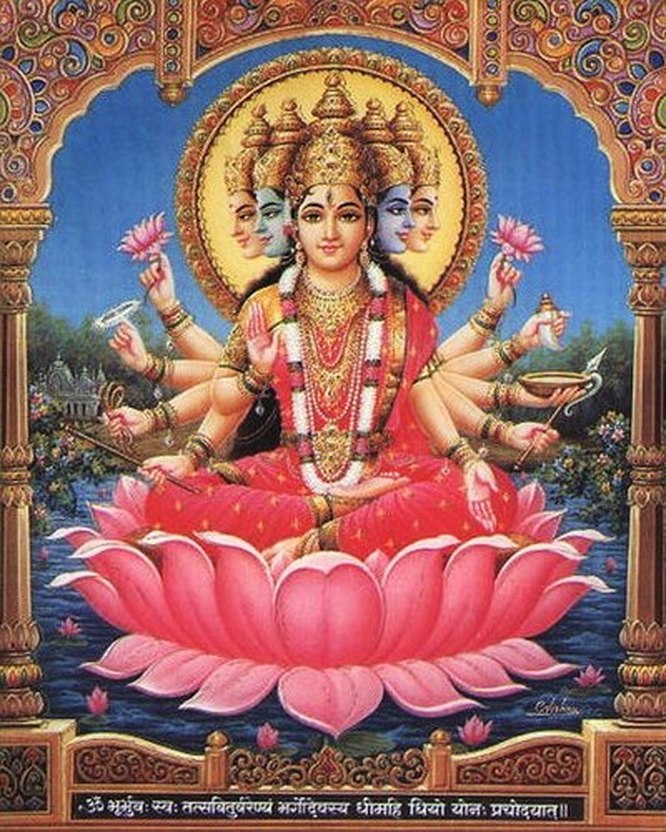
is said to have cursed the Trinity; was that a blessing? Mother Savitri is a manifestation of Goddess Saraswati, the Hindu goddess of learning and arts. As Savitri, She is the consort of Hindu God Brahma. Mother is the godde...ss of wisdom, intellectual knowledge, fine arts and creativity, embodies the very wisdom of Devi. She is believed to inspire speech and the written word. She is the ever-flowing river of consciousness that is the Shakti of Creation. She is also Savitri the goddess of dawn who dispels the darkness of ignorance and lights the diya or lamp of Eternal Knowledge. In her absence, chaos and confusion prevail. To realize her, is to know the unchanging eternal serenity of the Spirit. Goddesses Gayatri, Savitri and Saraswati are three goddesses representing the presiding deities of the famous Gayatri mantra chanted thrice a day.
MATSYA PURANA:
A verse in this Purana gives authority for the belief that only Goddess Saraswathi is intended, though she is called by several names: ‘Brahma next formed from his immaculate substance a female, who is celebrated under the names of Satarupa, Savitri, Sarasvati, Gayatri and Brahmani.’
VARAHA PURANA:
Mother Saraswathi is addressed as Gayatri, Saraswati, Mahesvari (one of the names of Mother Parvati) and also Savitri. Mother is regularly worshipped once a year as the Goddess of Learning.
DEPICTION:
Savitri is the presiding deity of science. Savitri and Gayatri are Primordial Energy of Brahma. They are his Brahmi Shakti or Divine Energy. The vehicle of Gayatri is a swan. Swan is symbolic of sattwa guna and purity. Its feathers do not get wet representing detachment. Its eating qualities are symbolic of viveka meaning prudence and discrimination.
Rosary connotes meditation and books means self introspection via scriptural studies etc. This then is the image of maternal power. It is the presiding deity of human glory thus it has one face. The vehicle of Savitri is a lotus. Lotus means joy and enlightenment.
Savitri has five faces; three of the five heads of Savitri are Shiva, Vishnu and Brahman, the masculine Trimurti. The 10 arms of Savitri mean 10 senses of the body. It is through the power of the senses that the body functions. Her five heads also symbolize the five elements, and also the five koshas or sheaths which cover our inner nature or Atman. Her ten arms hold the ten weapons of Vishnu, signifying the ten incarnations. She is seen as the mother and culmination of Sri Lakshmi, Sri Parvati and Sri Saraswati. She is the supreme power or Adi Shakti of God. Her ten eyes look in the eight directions as well as to the earth and sky. She is the unity in eternity of the past, present and future.
BRAHMA’S HEADS:
Shiva Purana - Brahma is the Hindu god of creation and one of the Trimurti, the others being Vishnu and Shiva. According to the Brahma Purana, he is the father of Manu, and from Manu all human beings are descended. In the Ramayana and the Mahabharata, he is often referred to as the progenitor or great grandsire of all human beings. Brahma's wife is Saraswati. He has two other wives Savitri and Gayatri. All his three wives are Vedic Goddesses and are revered as Vedamata meaning Mother of the Vedas. Brahma is often identified with Prajapati, a Vedic deity.
Brahma originally possessed one Head. From a part of his own body, He created a woman Shatarupa, a face with 100 beauties known as Savitri, Brahmi, Saraswati., Gayatri and Sandhya. Apparently Brahma fell in love with his own female creation and could not take his eyes off her extraordinary beauty. Shatarupa felt shy and tried to evade his gaze by moving away on all sides. As she moved to the right, to the left and behind him, a new head sprang out each direction. The Savitri went in the direction of the skies and a fifth head appeared. Thus, to follow her wherever she moved, Brahma created his 5 heads. His several heads were his most salient features. It was Shiva who deprived Brahma of his fifth head but how this occurred comes with varied accounts. However all versions highlight the tensions that existed beween Brahma and Siva. Superiority contest amongst the Trinity is a Puranic plot. There is also the issue of Brahma’s lie in one to establish his superiority over Vishnu in which Shiva shines supreme.
SKANDA PURANA:
In the legend in this Purana, though by Savitri, Sarasvati is intended, Gayatri represents some other person who became a second wife of Brahma. Lord Siva is addressing Parvati to tell the story: “Listen O Devi and I will tell you how Savitri forsook Brahma and he consequently espoused Gayatri. The Vedas have declared the great advantages which are derived by yajna, by which the Gods are delighted and therefore bestow rain…..
To secure therefore the vendure and validity of the three worlds, I perform sacrifices and in imitation of me, sacrifices are performed by gods and men. For the same purpose Brahma and his wife Saitri, the immortal and the holy sages repaired to Pushkara. But when all the preparations had been made, with all due rites and ceremonies, for performing yajna, Savitri, detained by some household affairs, was not in attendance. ‘I have not completed my dress, nor arranged my person (we all know how long ladies take to wear the saris or cosmetics, it is no difference then and now, no offence!) how therefore can I enter the assembly…….
‘Savitri is engaged and will not come’ said the priest. Bhavani, Ganga, Svaha and Indrani had arrived except for the Trinity consorts. The gods were incensed at the conduct of Savitri and thus they spoke to Indra. This was after-all Brahma’s yajna and without a wife what advantage can be derived from these rites. So they summoned Indra and in obedience to his order ‘bring a wife from wherever you can find one’ for Brahma. Indra proceeded, as he passed hastily along, he saw a milkmaid, young, beautiful and smiling countenance, carrying a jar of butter. He seized her and brought her to the yajna assembly....
Now, looking at the milkmaid’s beauty, Brahma addressed the assembly “O gods and holy sages if it seem good unto you, I will expouse this Gayatri, and she shall be the mother of the Vedas and the cause of purity to these worlds. Upon this Brahma was united to Gayatri, who was led into the bower of the bride and there arrayed in silken garments and she adorned the costliest ornaments……
Just as Brahma was leading his new bride to the yajna, Savitri accompanied by Vishnu’s Lakshmi and Rudra’s Uma and the other gods entered the palace of sacrifice. Seeing Brahma clasping hands with a milkmaid and the yajna performance commenced, Savitri was incensed with anger. In all loud voice she addressed Brahma Pitmahar “O Brahma! Hast thou conceived so sinful an intention to reject me, who am thy wedded wife? Hast thou no sense of shame, that thus, influenced by love, thou committest so reprehensible an act?....how can I now show my face; or deserted by my husband, call myself a wife?
Then Brahma apparently goes on plea “The priest inform me that the time for the sacrifice was passing away, and that it could not be profitably performed unless my wife be present; and Indra having produced Gayatru, it was Vishnu and Rudra gave her in marriage to me. Firgive, therefore, this one act and I will never offend thee!”
SAVITRI’S CURSES:
Shiva Purana - On hearing these words and knowing the benefits of the yajna for the three worlds, Savitri exclaimed “By the powers which I have obtained by the performance of my tapas, may you Brahma never be worshipped in temple or a sacred place, except for one day in each year……And Indra, since thou did bring that milkmaid to Brahma, thou shalt be bound in chains by thine enemies in a strange country. Addressing Vishnu, Savitri said “ Since thou gavest her in marriage to Brahma, shalt thou, in consequence of Bhirgu’s curse, be born and reborn amongst men and thou shalt endure the agony of having thy wife ravished from thee by thine enemy; and long shalt thou wander as the humble keeper of cattle! To Rudra she said : by my curses shalt thou be deprived of thy manhood. To Surya and Agni “mayest thou be a devourer of all things, clean and unclean. To all the priests “henceforth shall ye perform yajna solely from the desire of obtaining usual gifts and ye be satisfied with the food of others and be dissatisfied with your own houses.”
Thus spoken, Savitri left the assembly hall. Lakshmi and Uma accompanied for a short distance and returned to the yajna assembly as dutiful consorts. On seeing this Savitri was incensed again. She addressed Lakshmi “Since you forsake me, O Lakshmi, mayest thou never remain stationary…. She thereafter threw her words against Indrani “When Indra incurs the guilt of brahmanicide by slaying Tvastri’s son, Nashusha shall acquire the kingdom and shall desire thee flesh.” Then she pronounced a collective curse “May you all remain barren and may you never enjoy the pleasure of having children. Vishnu tried to appease Savitri but she made an angry departure.
GAYATRI’S REDEMPTION:
Shiva Purana: Thereafter Gayatri modified the curses. She promised all kinds of blessing including final absorption of all worshippers of Brahma. Though Indra was to be bound, his son should release him. Though Vishnu would lose his wife, he would regain her. Though Rudra be deprived of his manhood, he would be represented neither as a male nor a female and universally worshipped as Linga. Though men made gifts to the priests, it would be because they revered the gods and finally, none of the goddesses would suffer cause or regret for not having children of their own.
CURSED AND REDEMPTIONS:
Do they ring a bell and would they be curses or blessings ?
PADMA PURANA ENDING:
Vishnu and Lakshmi pursue Savitri at Brahma’s request. They induced her to return. She agrees and on re-entering, Brahma asks Savitri what she wished to be done to Gayatri. Savitri was too bashful to speak, whereupon in full assembly Gayatri threw herself at her feet. Mother Savitri was all merciful and said “A wife ought to obey the wishes and orders of her husband, for that wife who reproaches her husband, who is complaining and quarrelsome, deprives him by her conduct of length of years and when she dies, most assuredly go to hell. Considering this, the virtuous wife will do nothing displeasing to her husband, therefore let us both be attached to Brahma.” So be it” said Gayatri “thy orders will I always obey and esteem thy friendship precious as my life, O Goddess! Deign to protect me.”
GAYATRI MANTRA:
This appears in Rig Veda 3/62.10 and is the most sacred of the Vedic mantras. It is named after, Gayatri Devi, the Veda Mata and she is the divine hymn; the personification of Parabrahman, the Absolute Deity. As Veda Mata, she is the supreme mother of the Thirumurthi and also the protector of the five pranas. As such, Gayatri Mantra, the Goddess and a river attributed to her are also known as Savitri.
SURYA – SAVITRI – GAYATRI.
In Vedic thoughts, the name Savitri is linked to the Surya, Sun God. Rig Veda V.81 is a hymn by Rishi Shyawashwa to Savitri. "The illumined yoke their mind and they yoke their thoughts to the illumined godhead, to the vast, to the luminous in consciousness; the one knower of all manifestation of knowledge, he alone orders the things of sacrifice. Great is the praise of Savitri, the creating godhead."
Vedas make reference to Savitri and Surya in the context of “illumined or the luminous, as also the illumined thinker.” In its crystallized thoughts, the Vedas mention Surya-Savitri; root of 'Surya' also means to loose, to release, to speed forth to create, revealing vision. So what we have is that Surya-Savitri is not only the Creator, but also the, the all-seer. What Surya-Savitri create are not words manifesting from them but self-conscious Truths. Due to this illimitable harmony between Surya and Savitri, the Vedic seer chose to evoke them in the Gayatri Mantra. Indeed, in their thinking Savitri was the Creator and Surya was the Revealer.
By Vedic accounts, Savitri is the daughter of the goddess of the supreme Truth who comes upon earth to save her from death and to bring into her immortality. She is ordained by selfborn Brahma and later born to King Ashwapathy. This effulgent daughter was named as Savitri. Savitri of the vedic rishis is reflected as Supreme in the Skanda and Shiva Puranas.
Hara Hara Mahedeva
Yogi Ananda Saraswathi
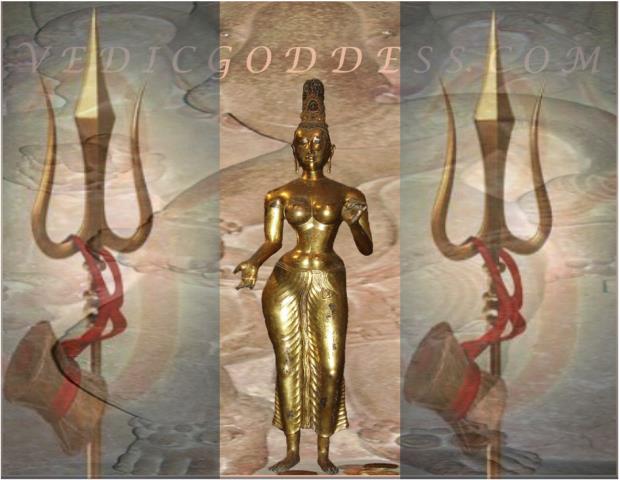
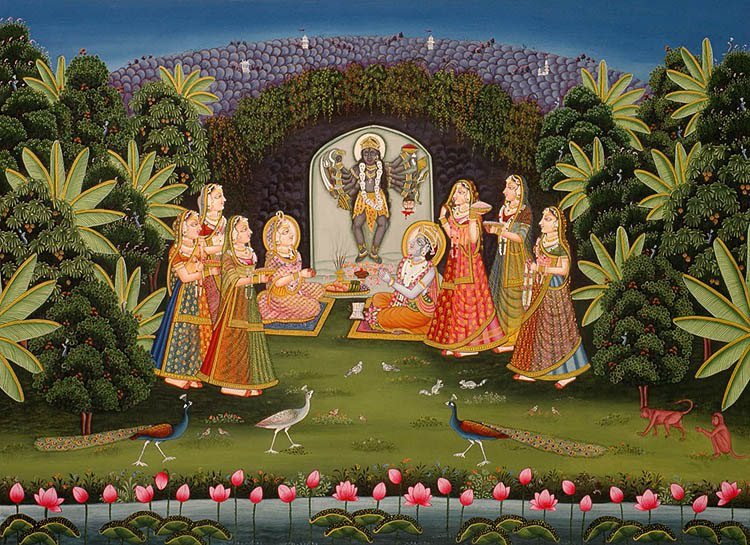
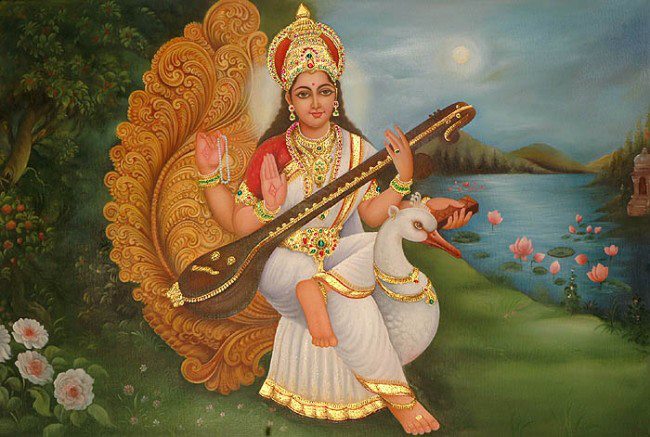
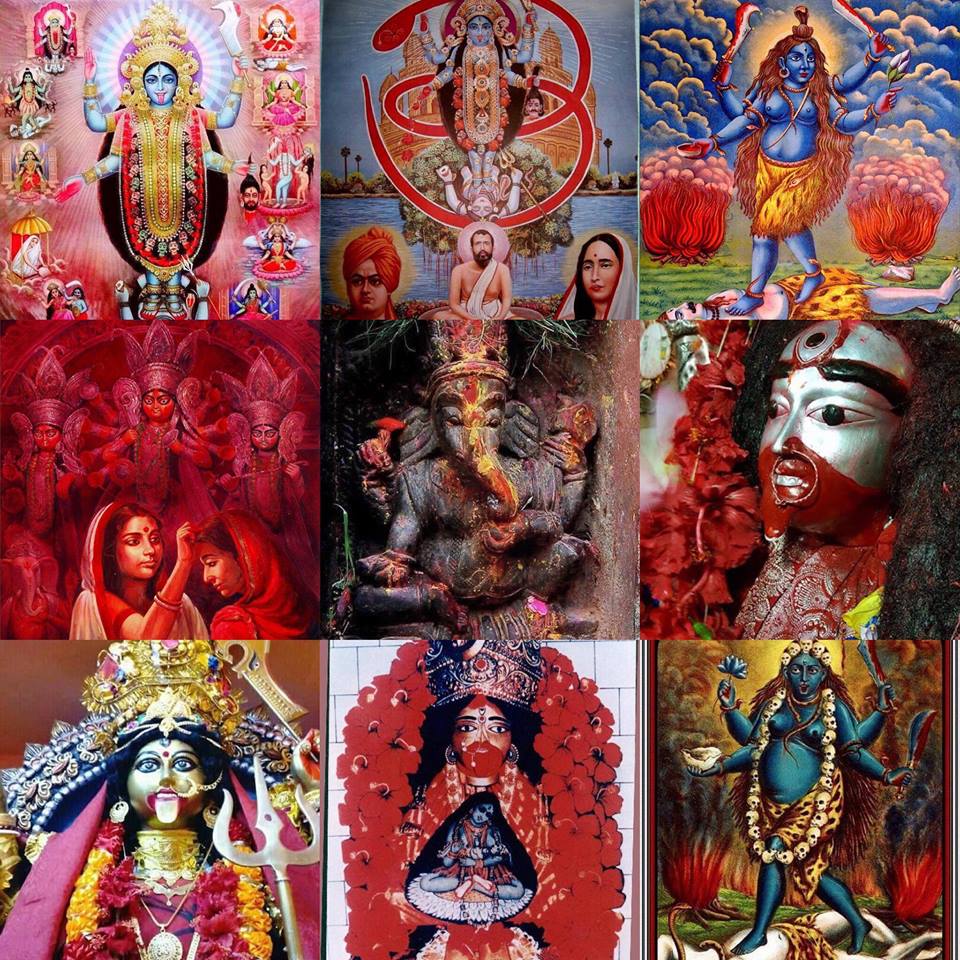
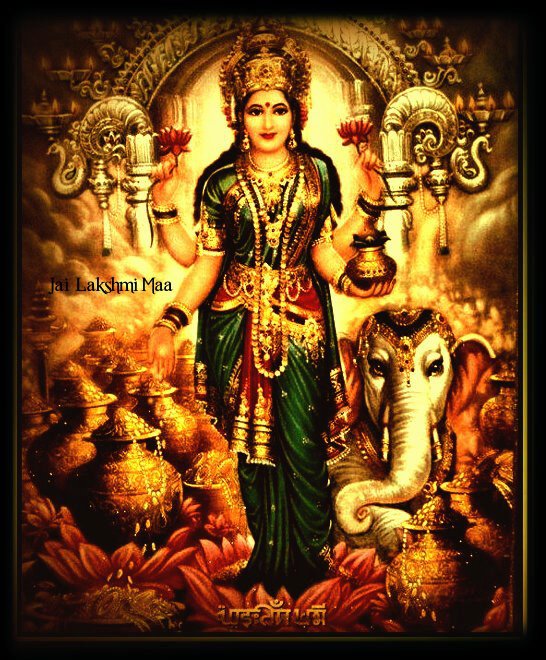
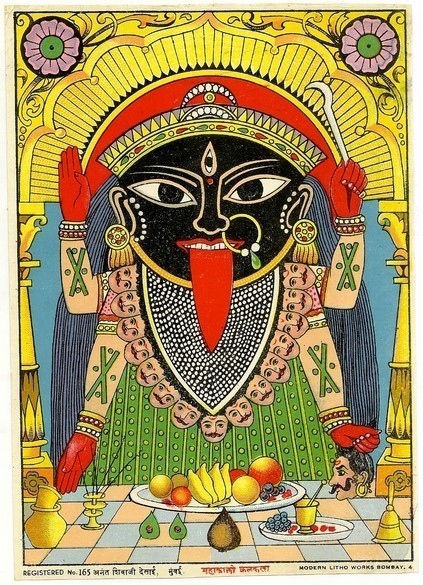
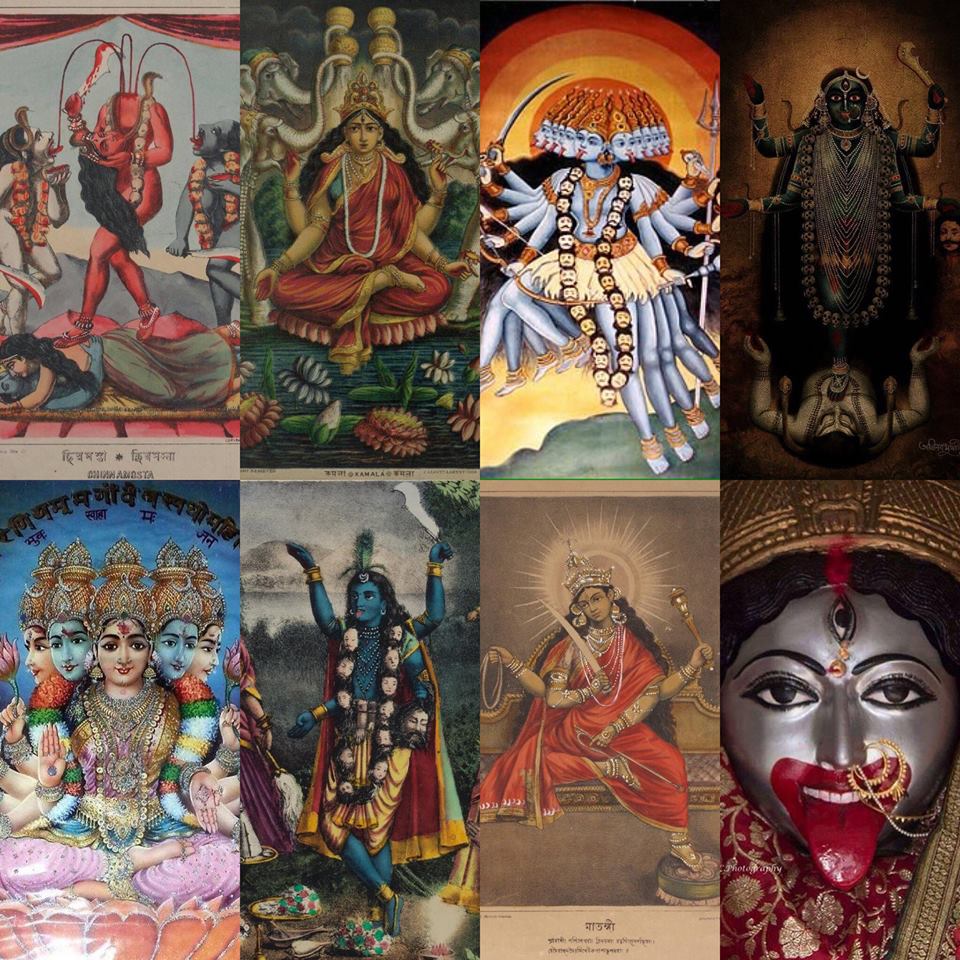
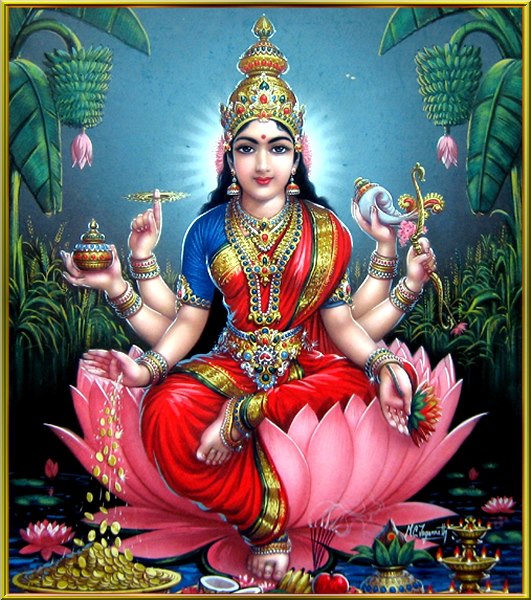
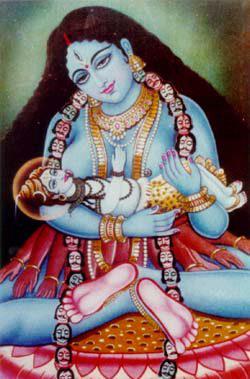
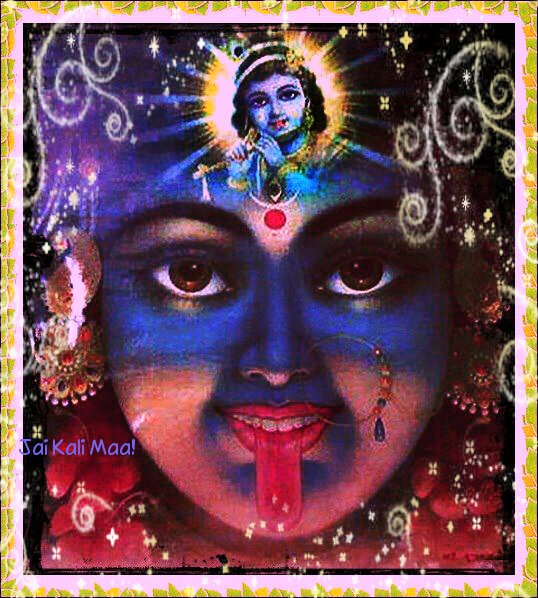
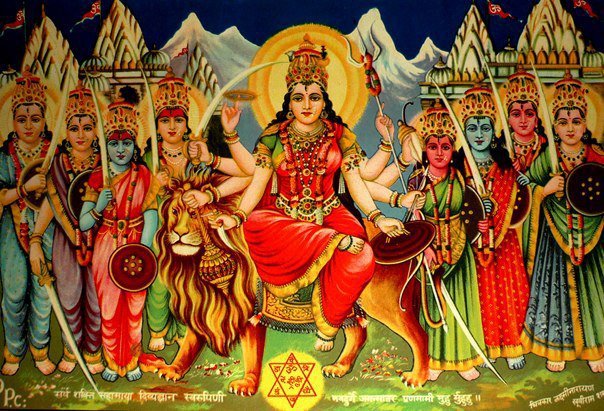
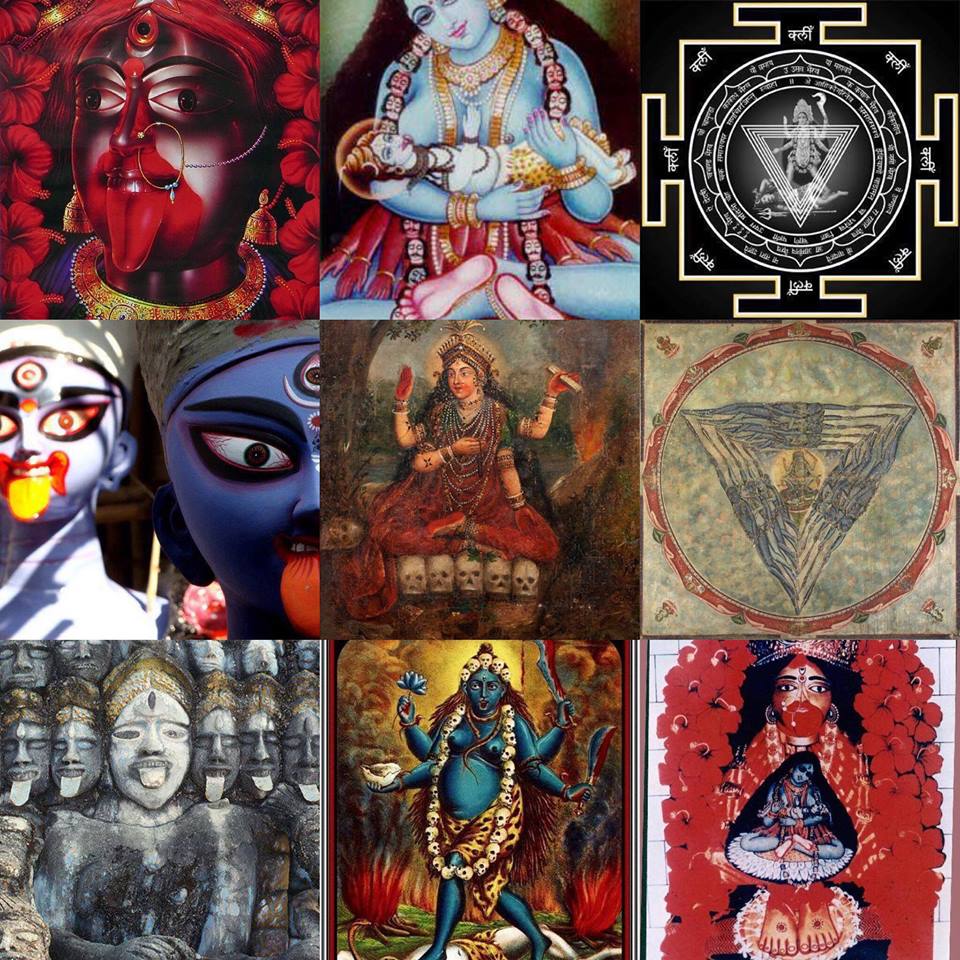
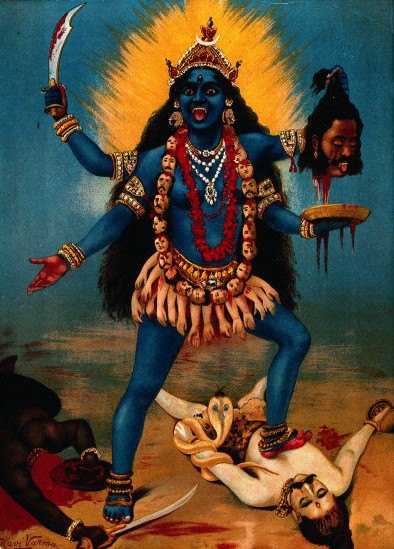
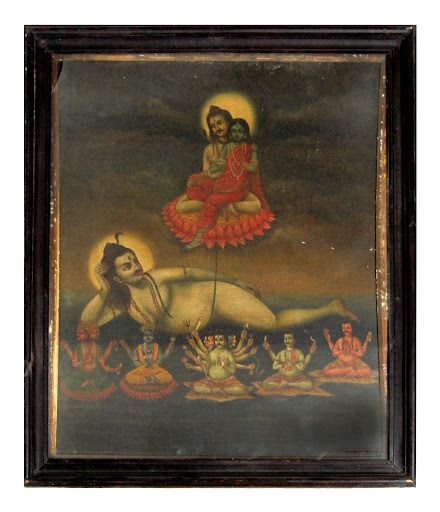
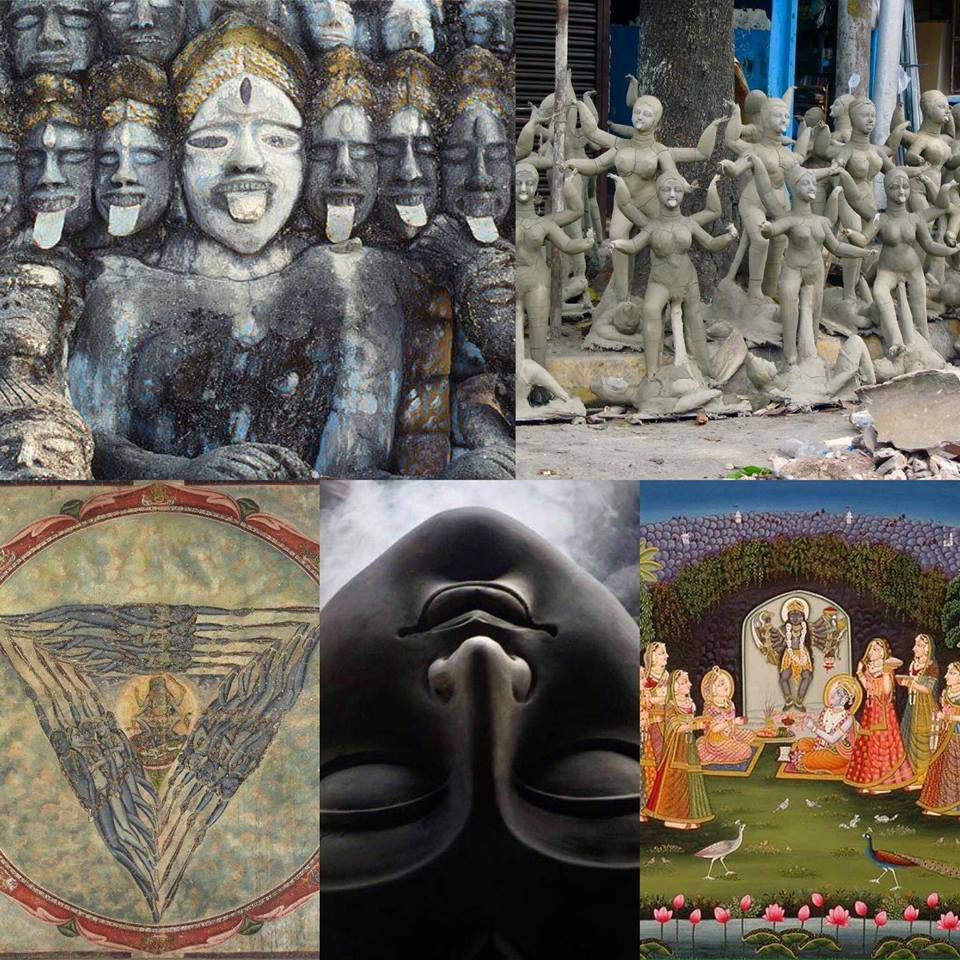
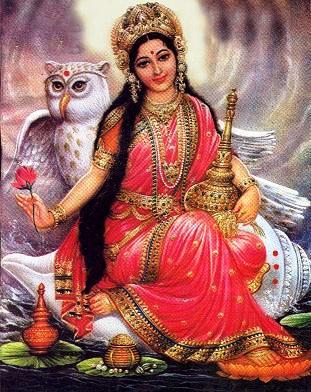
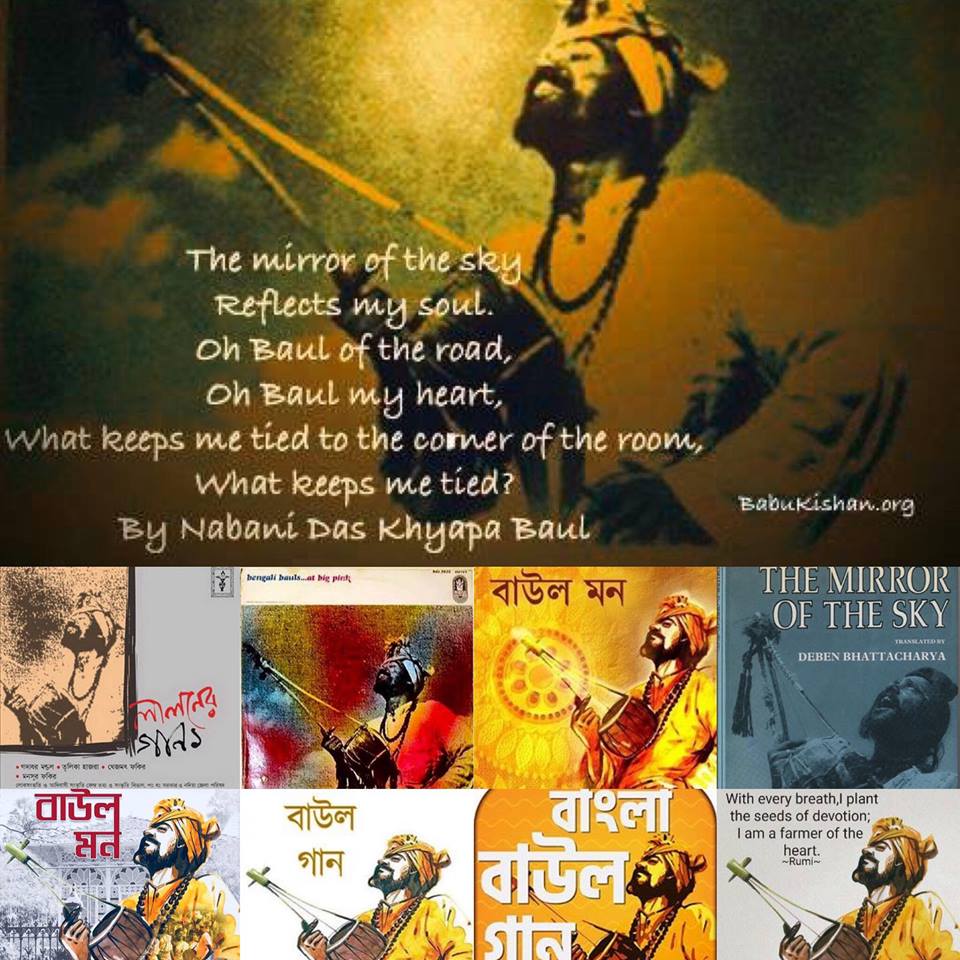
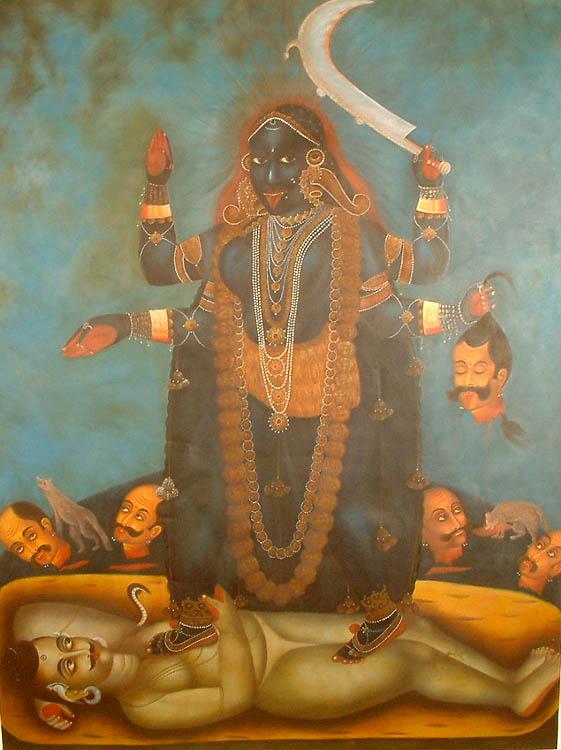
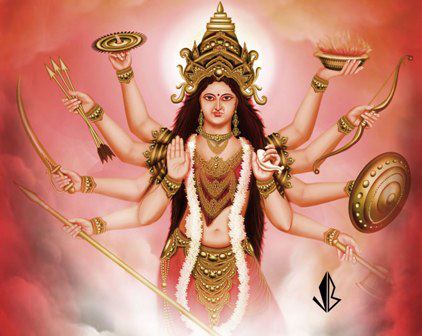
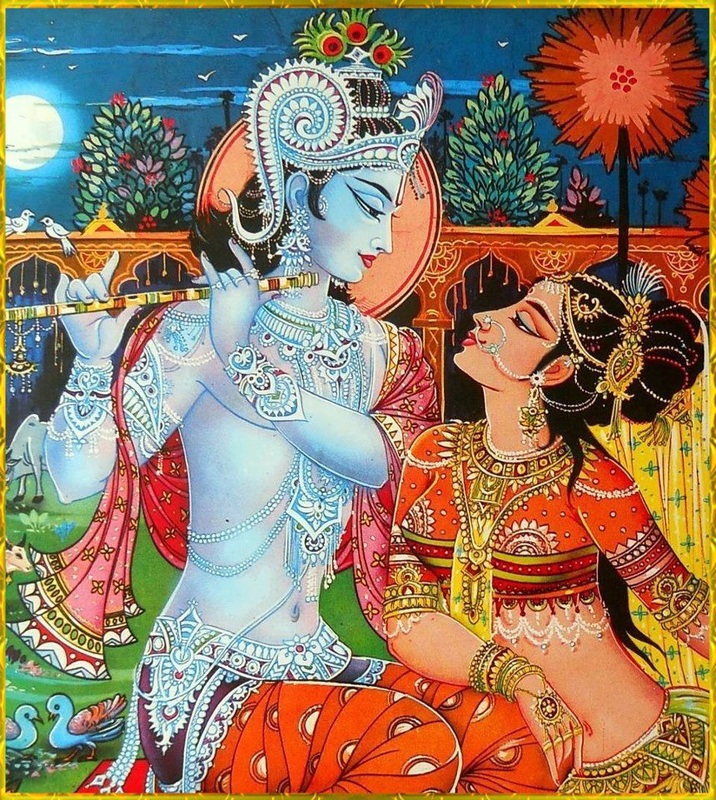
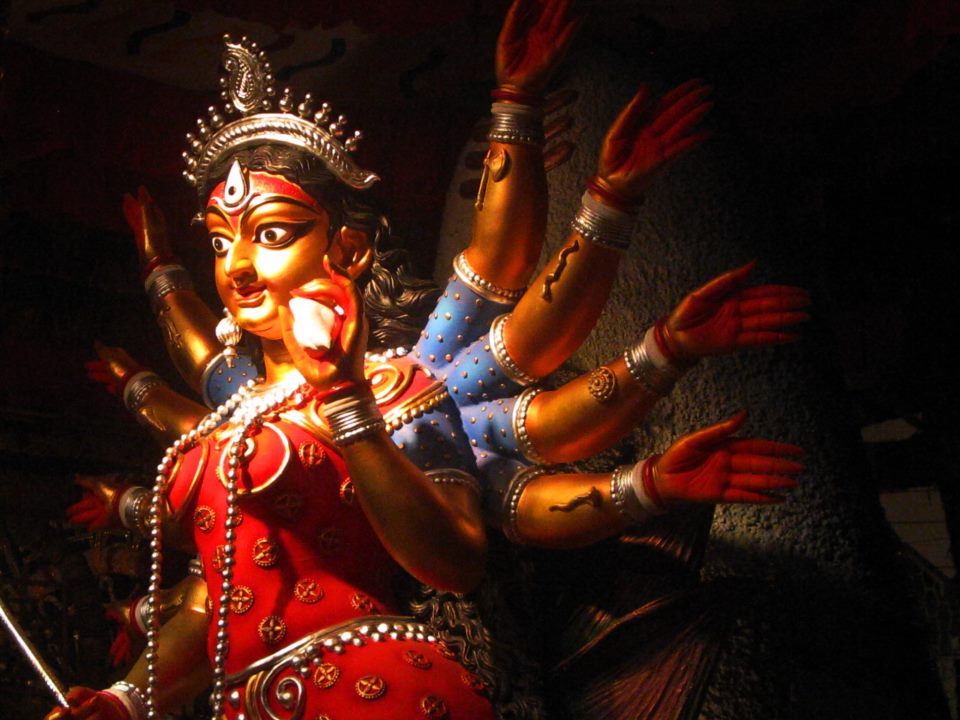
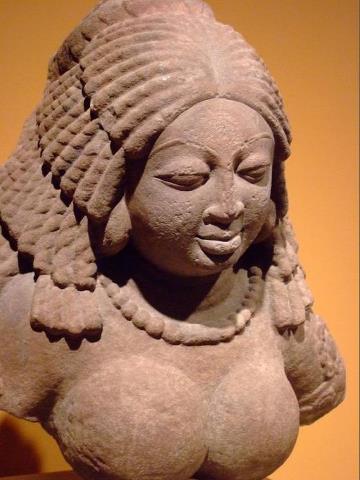
 RSS Feed
RSS Feed
